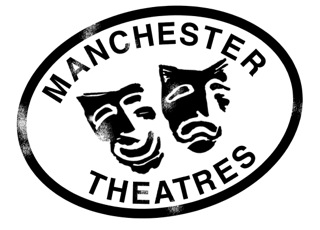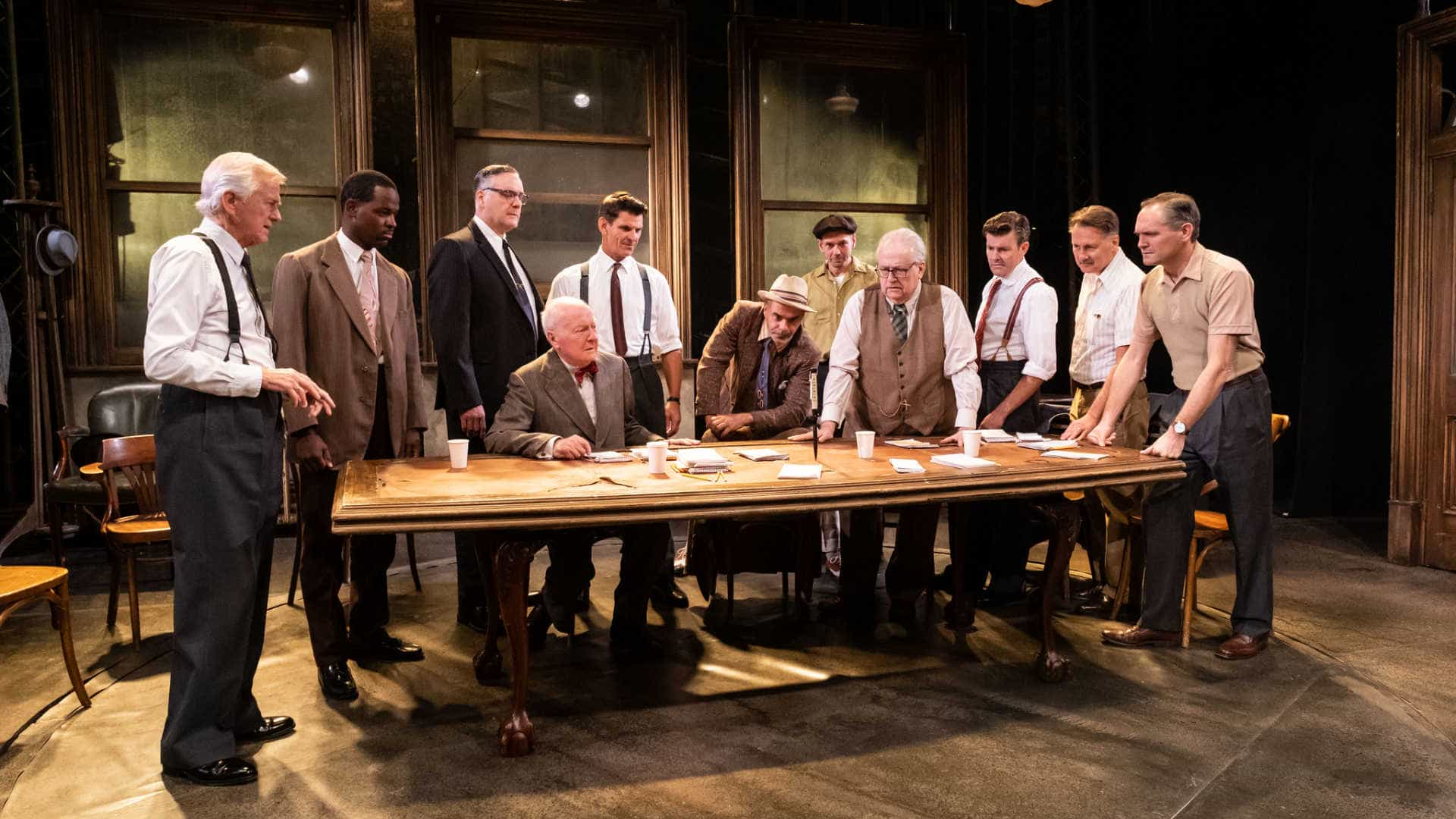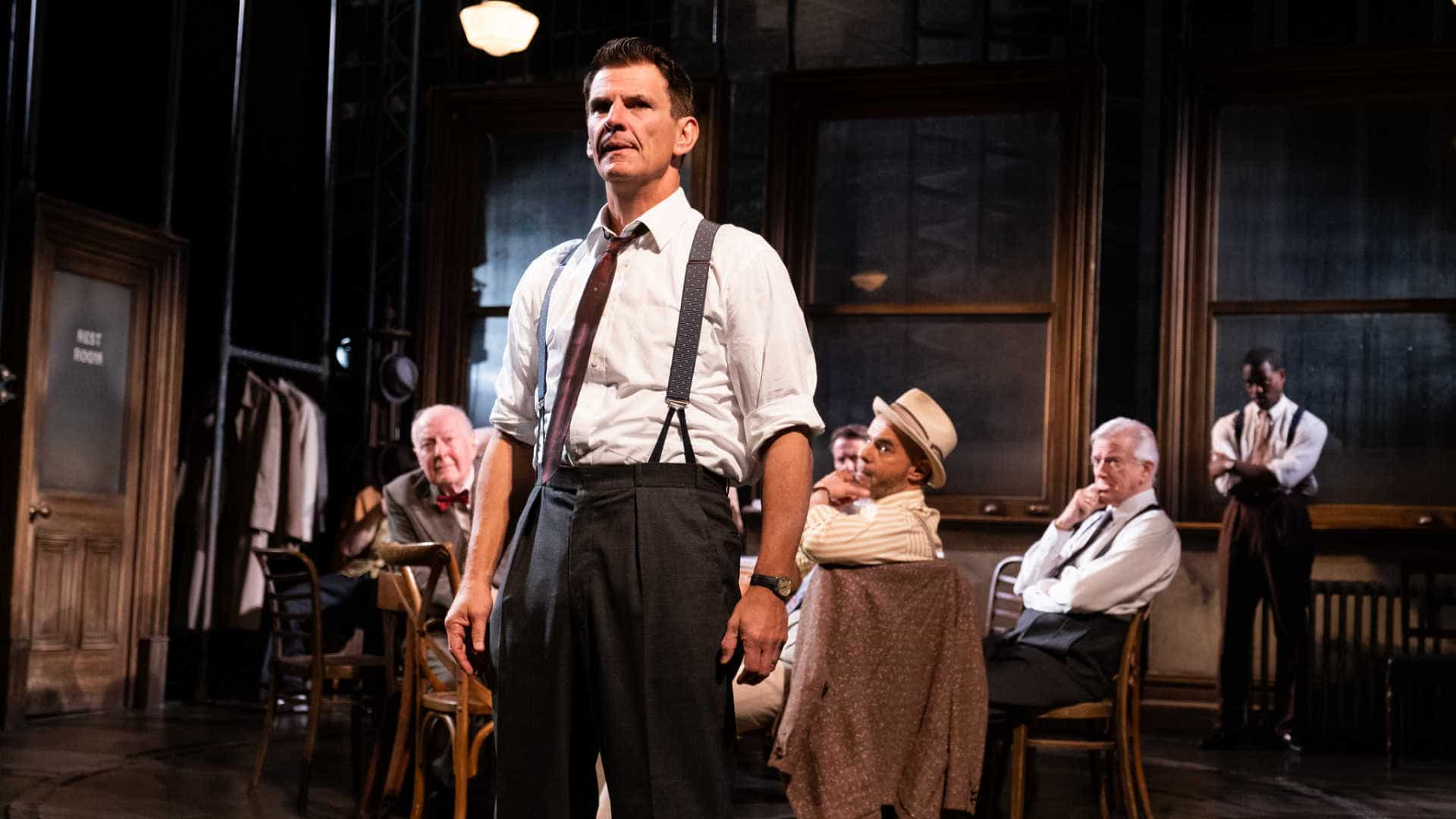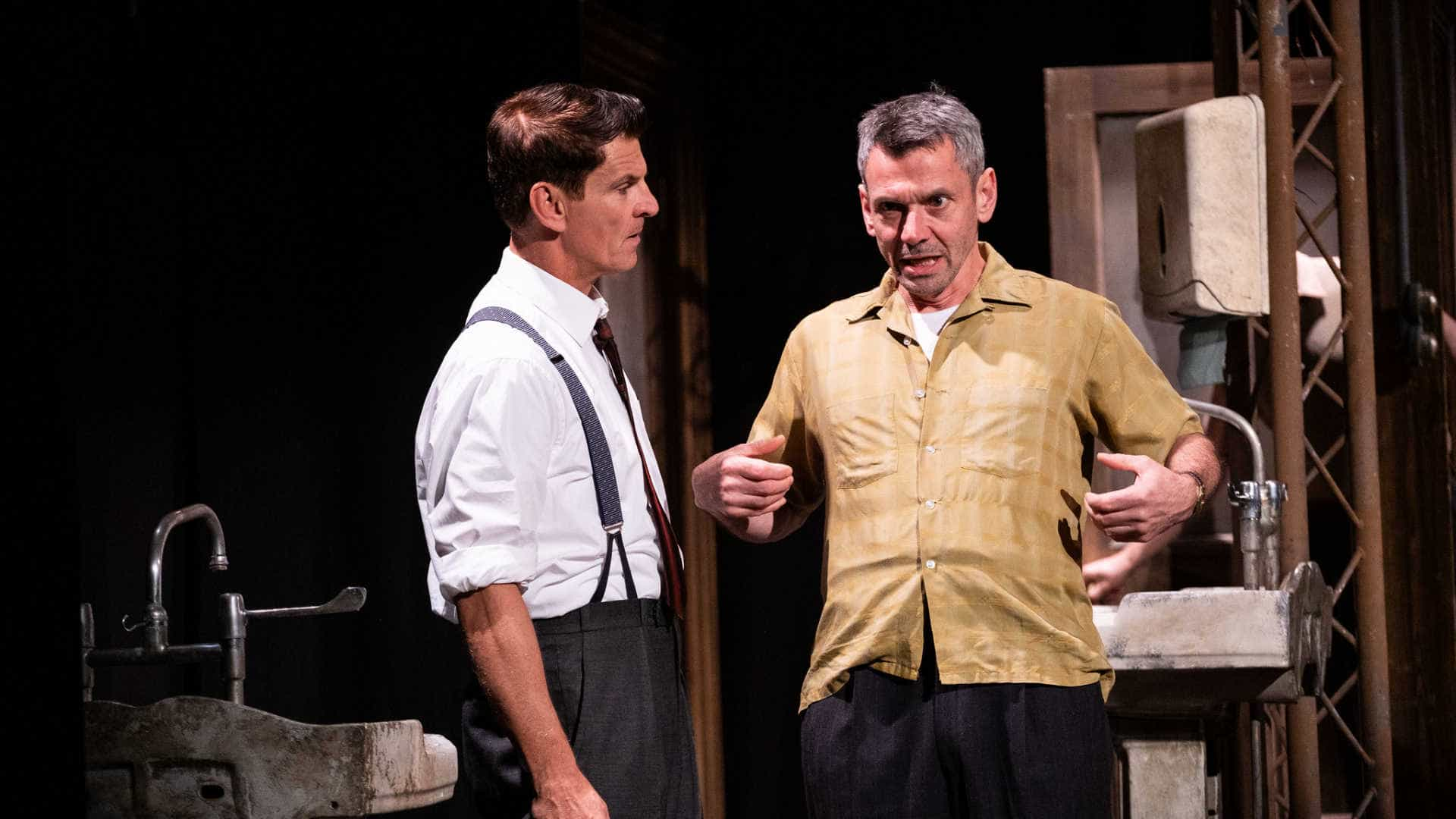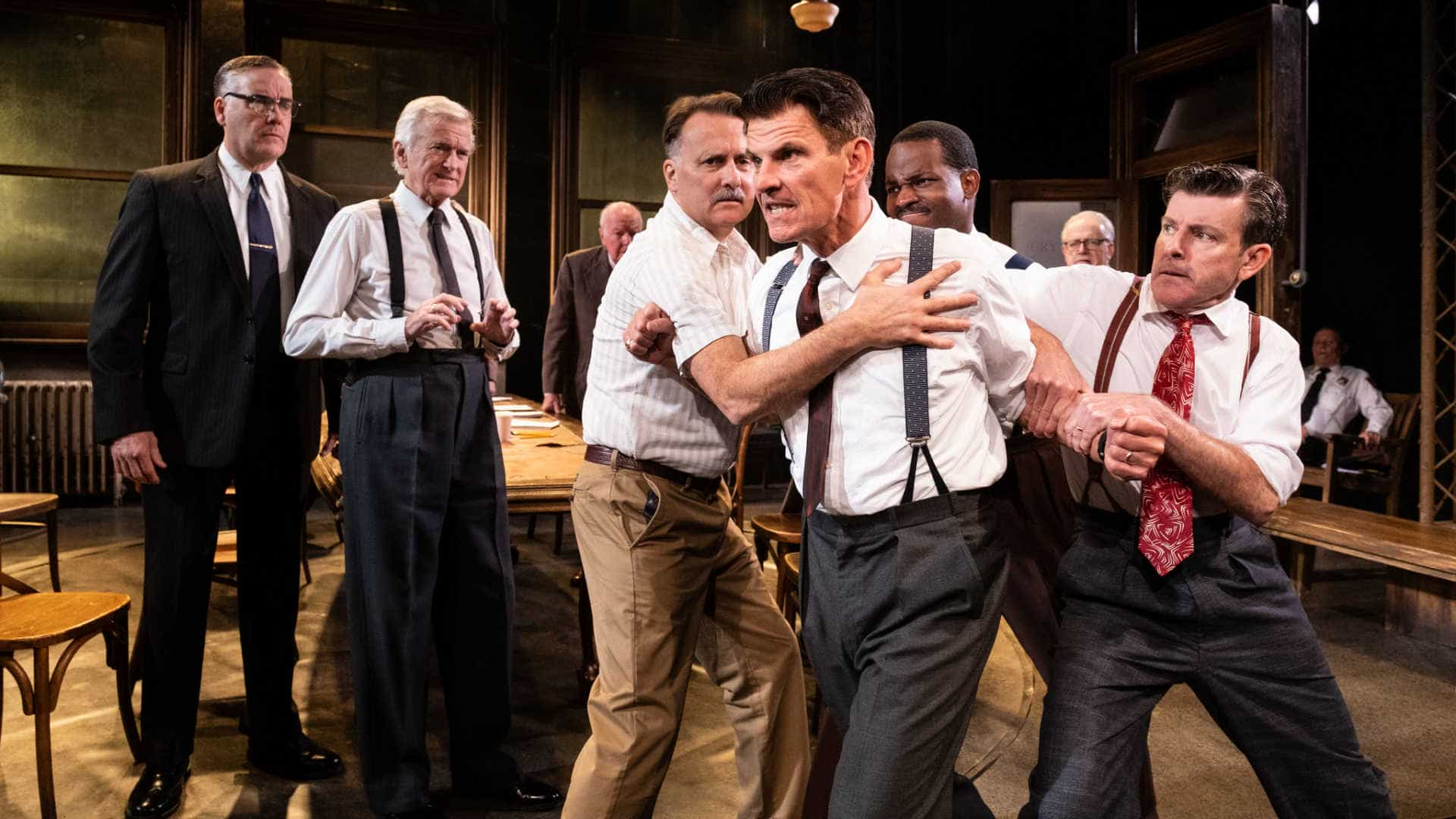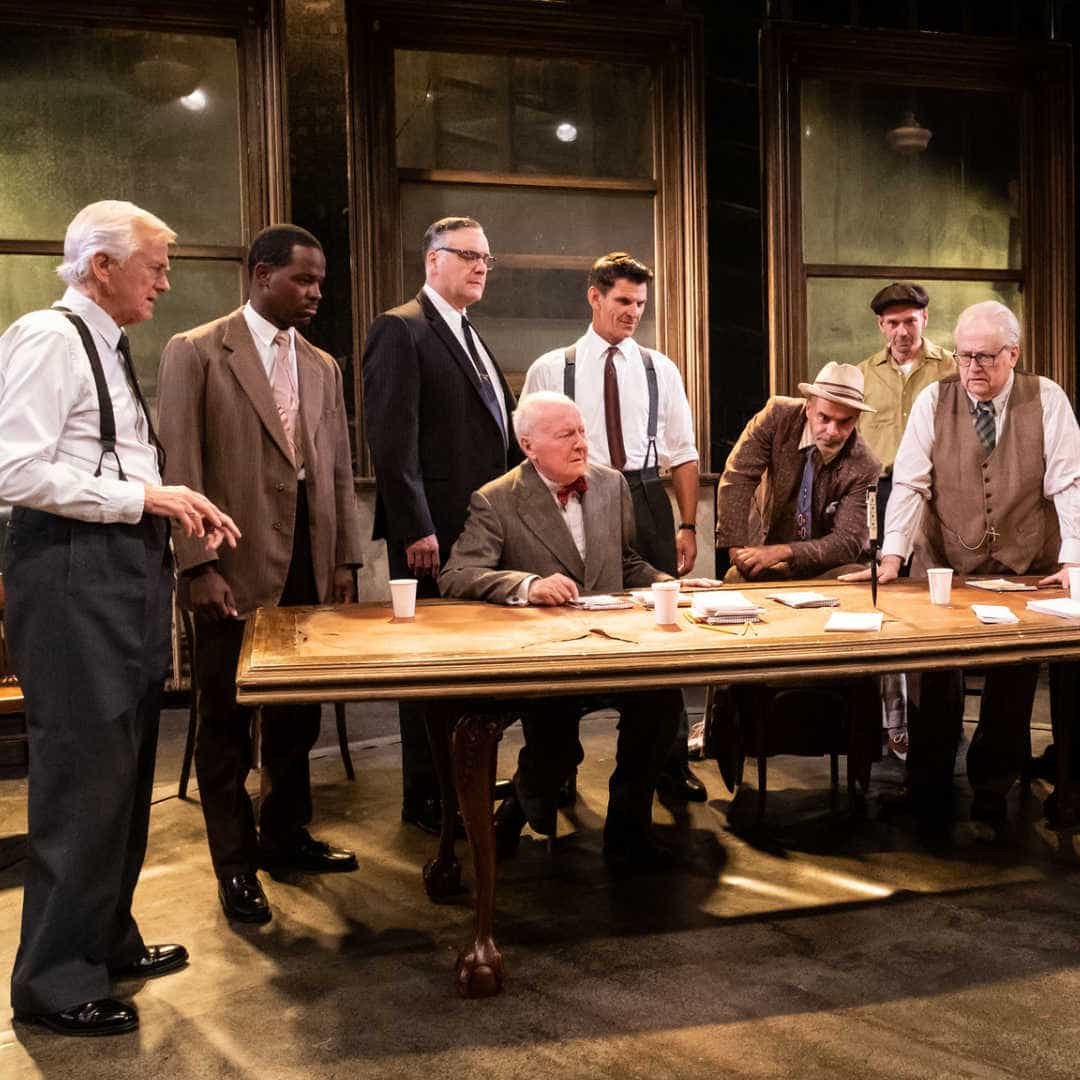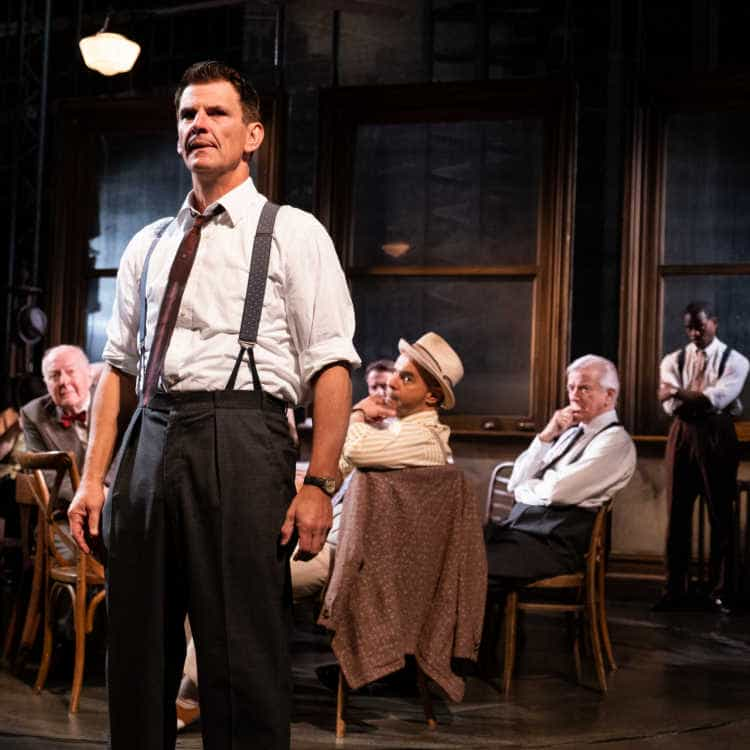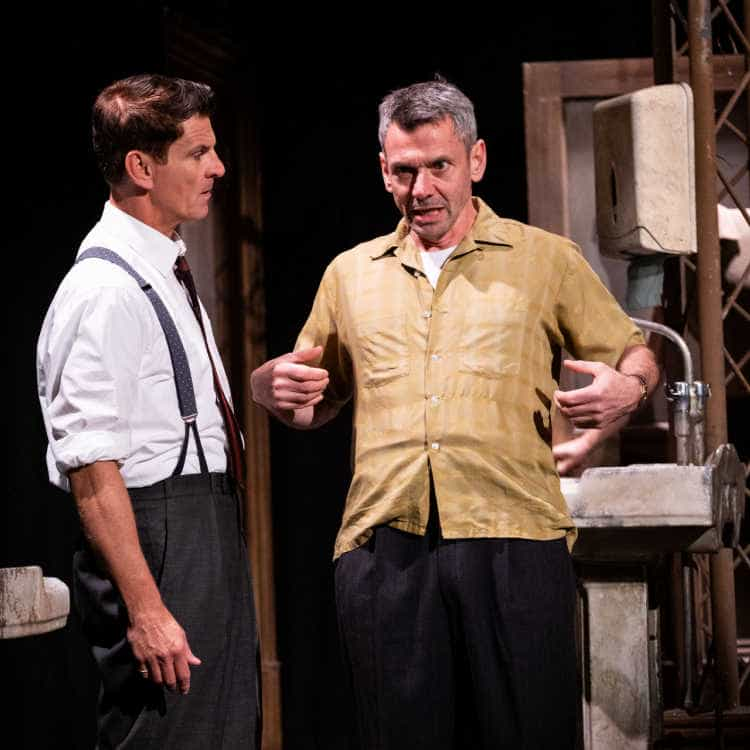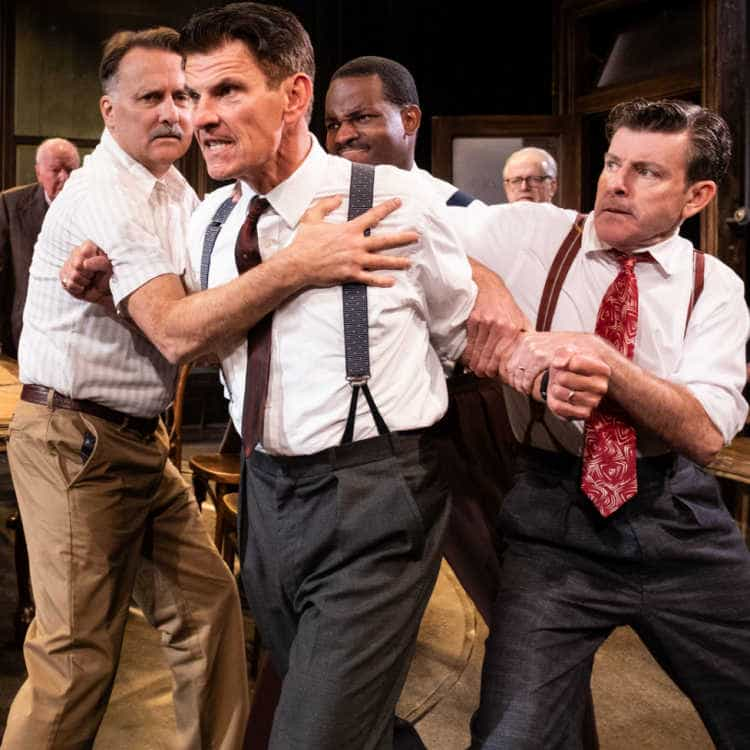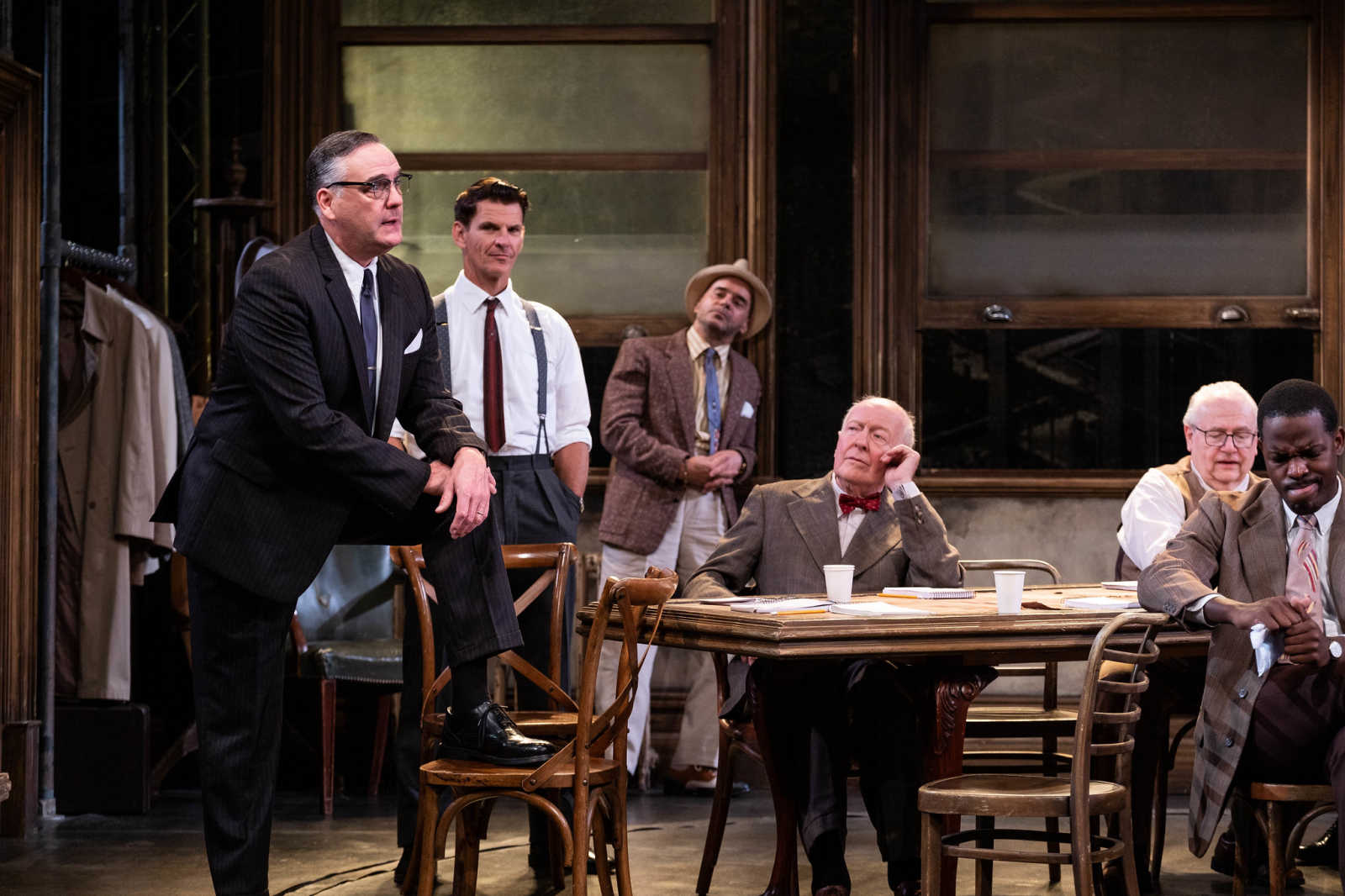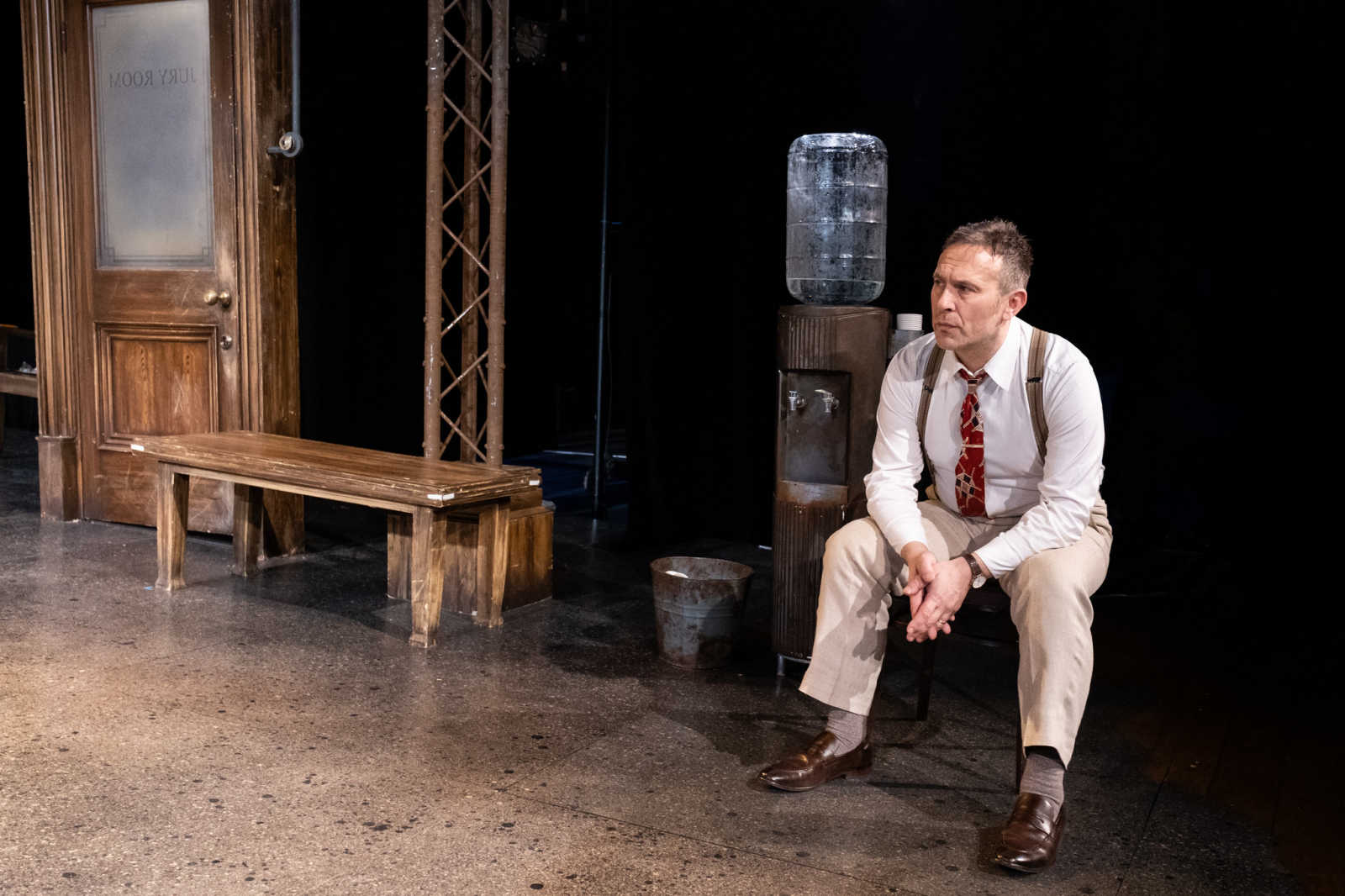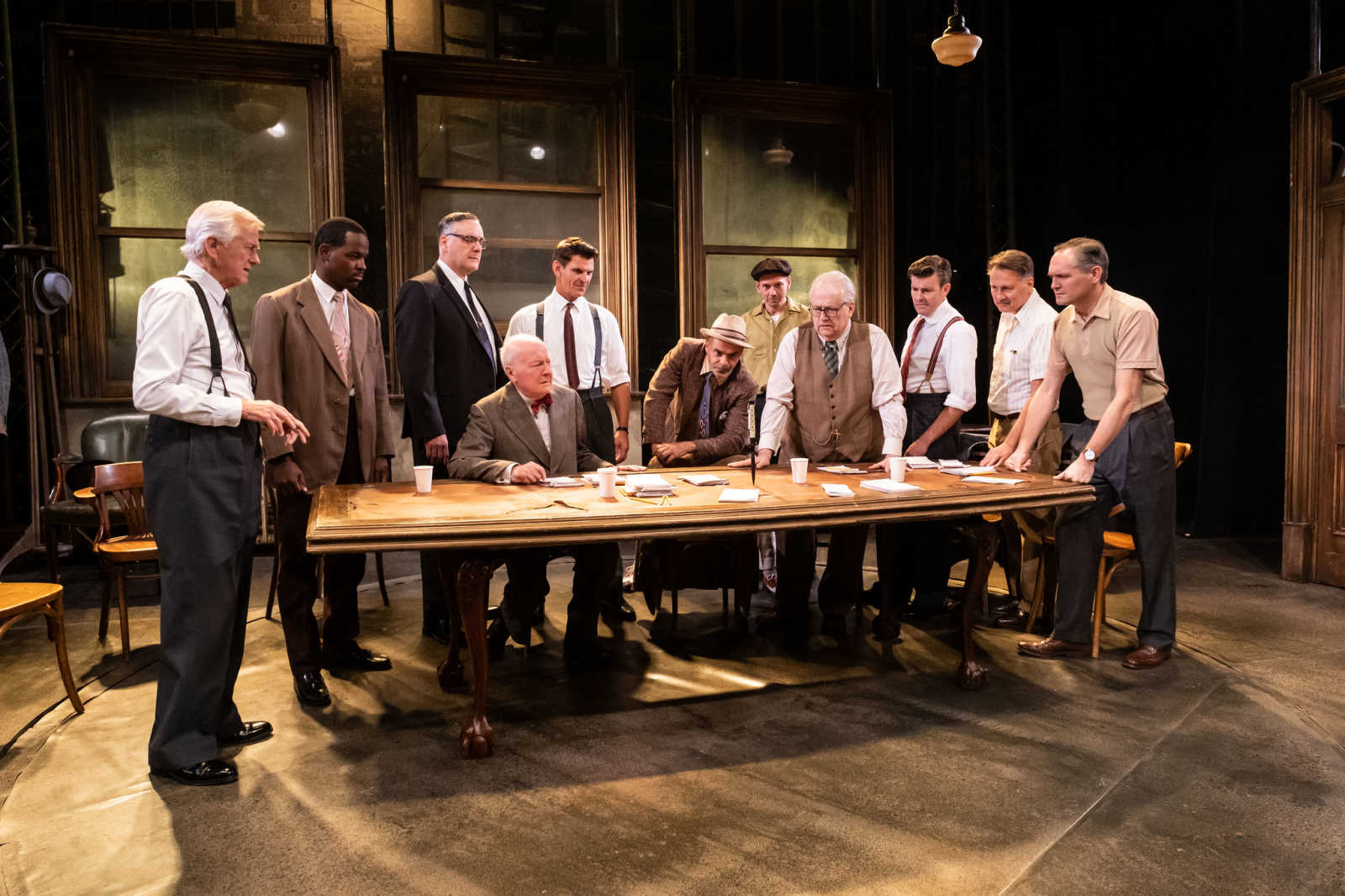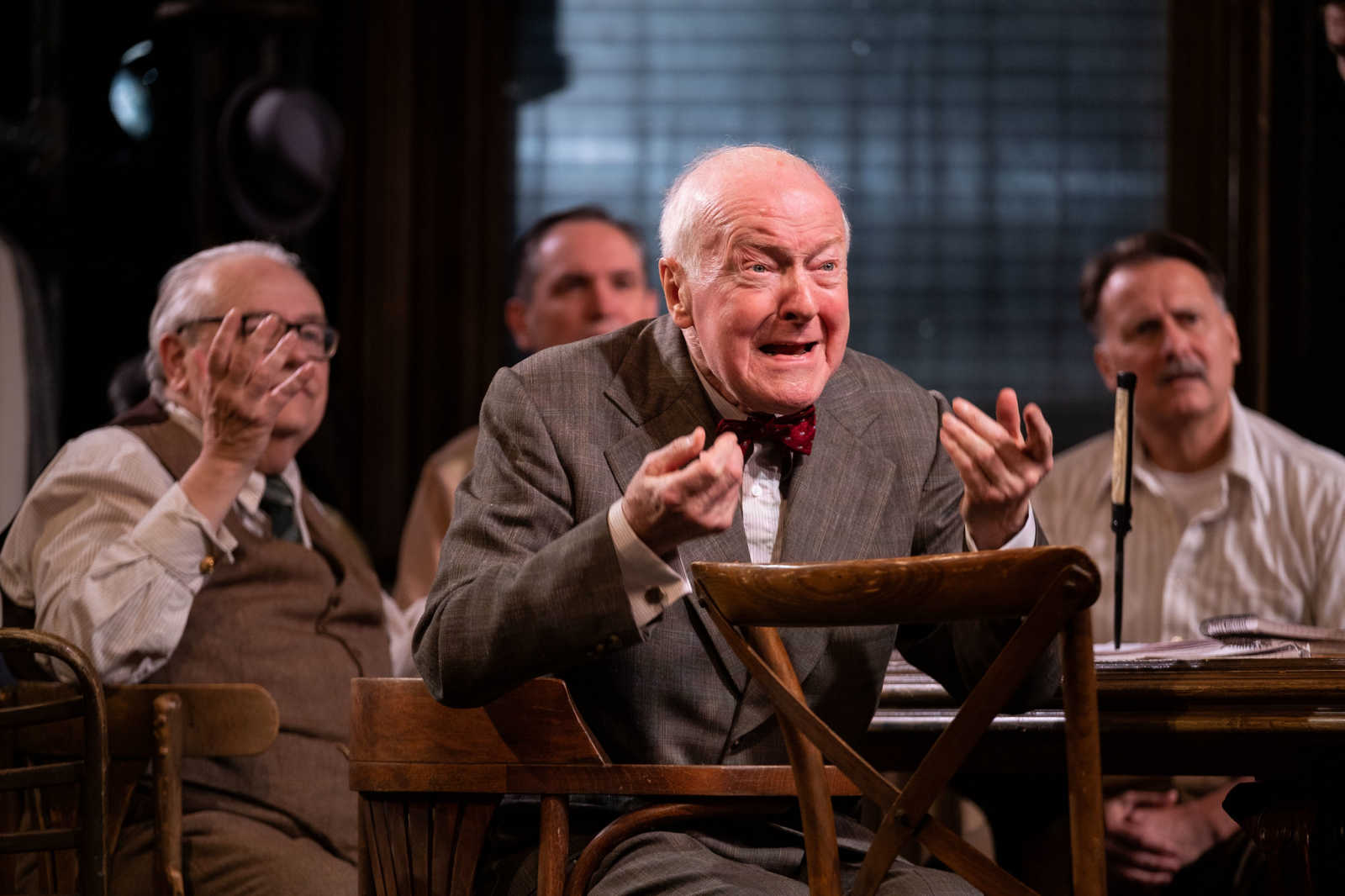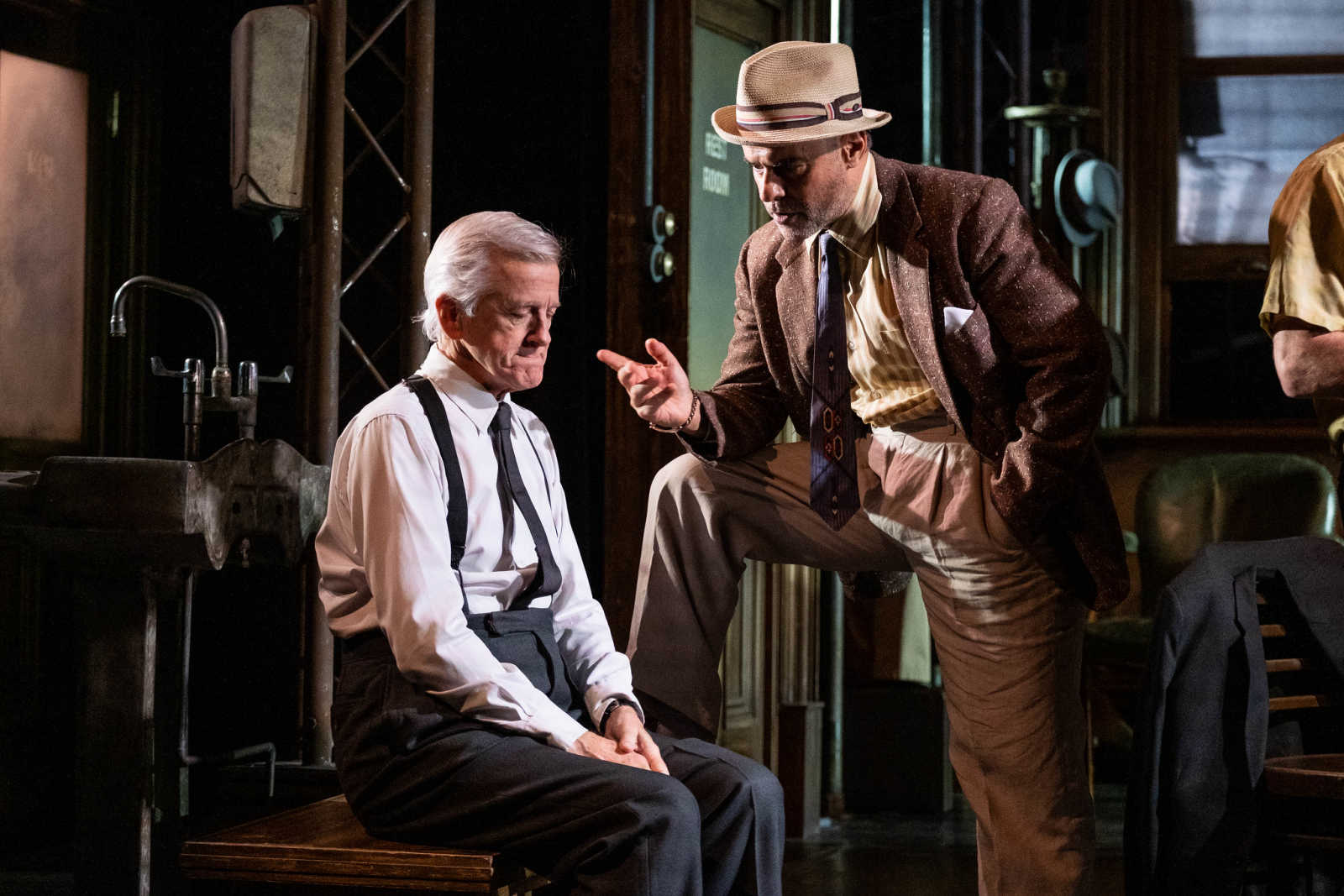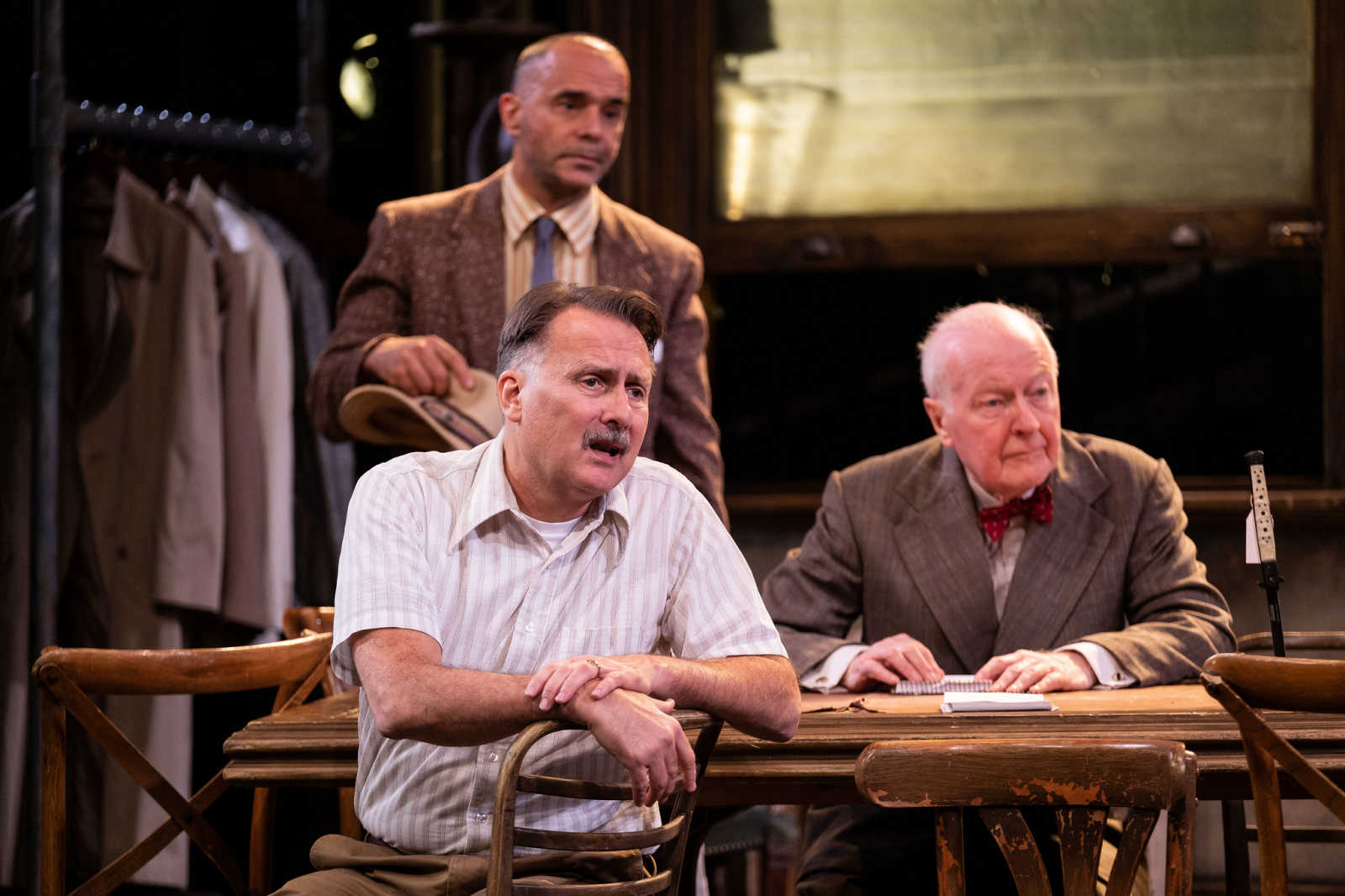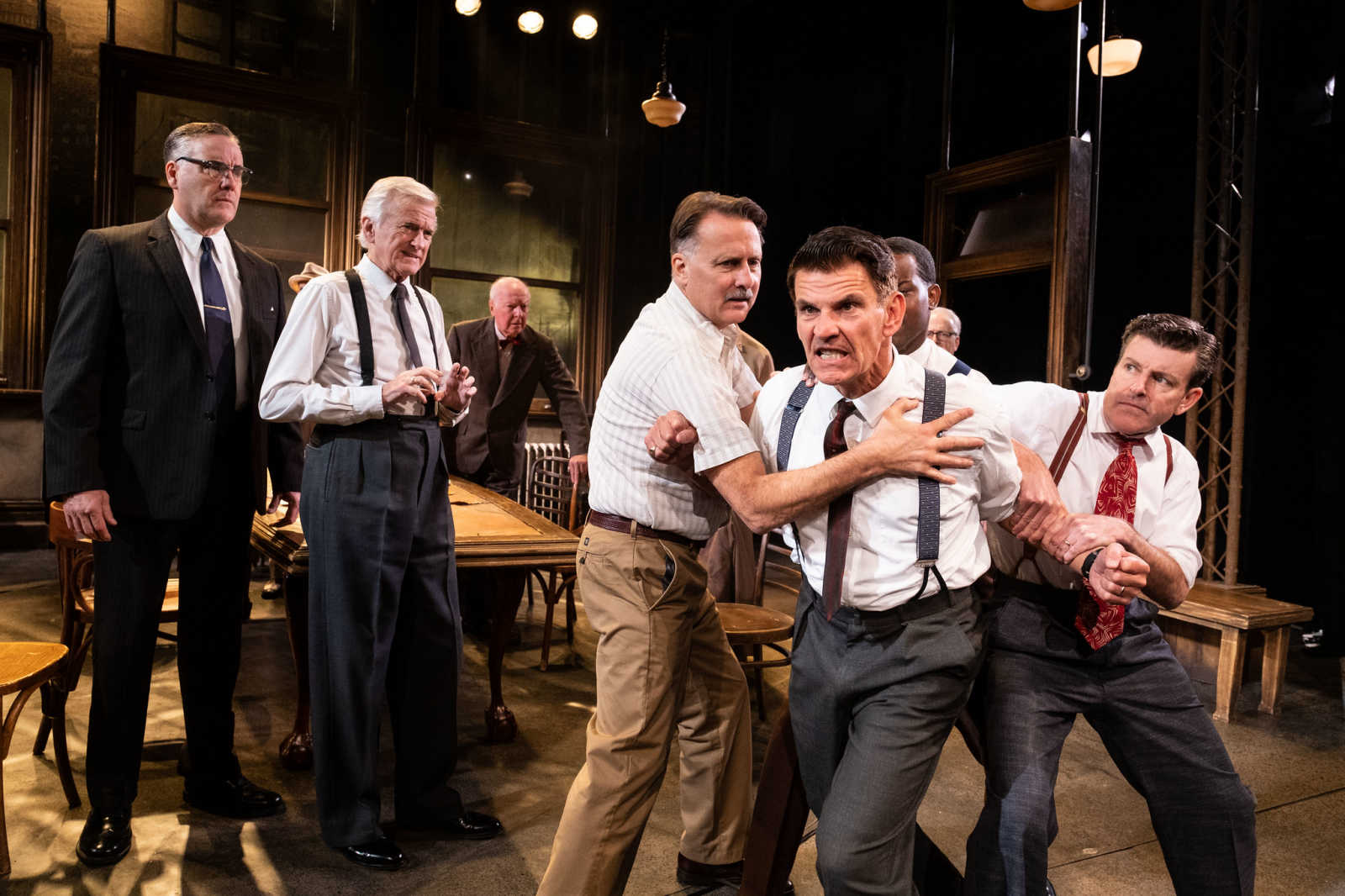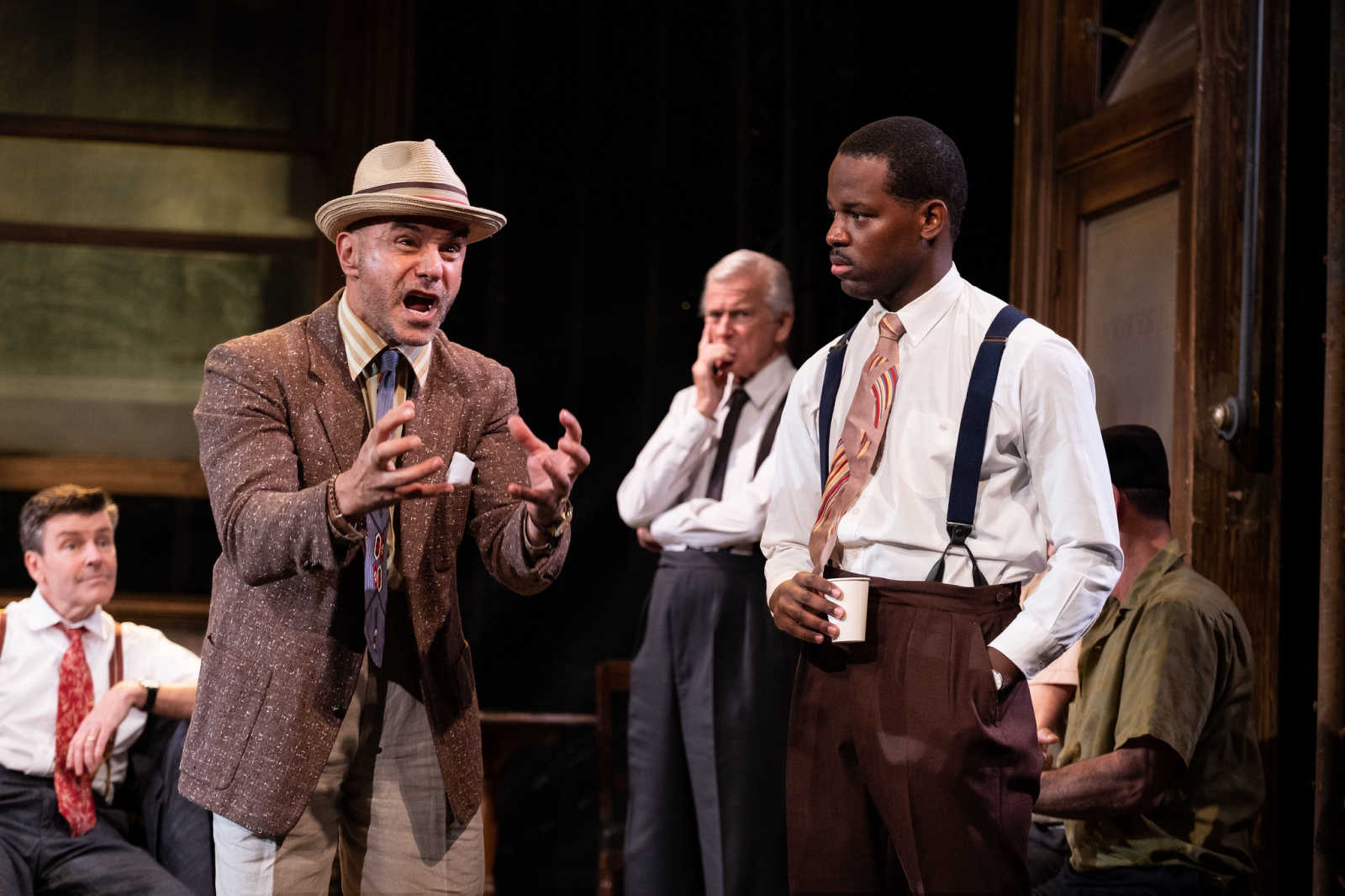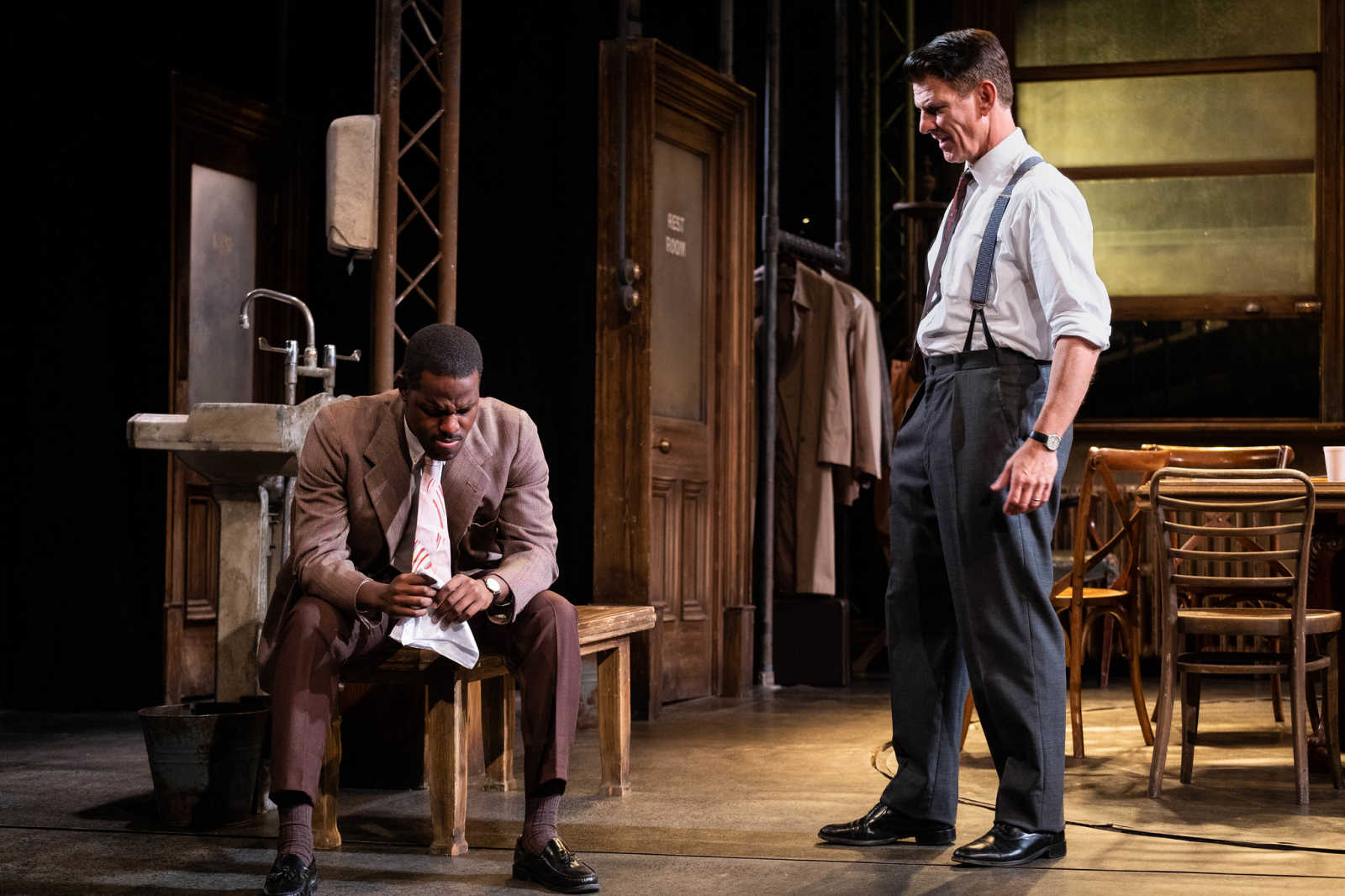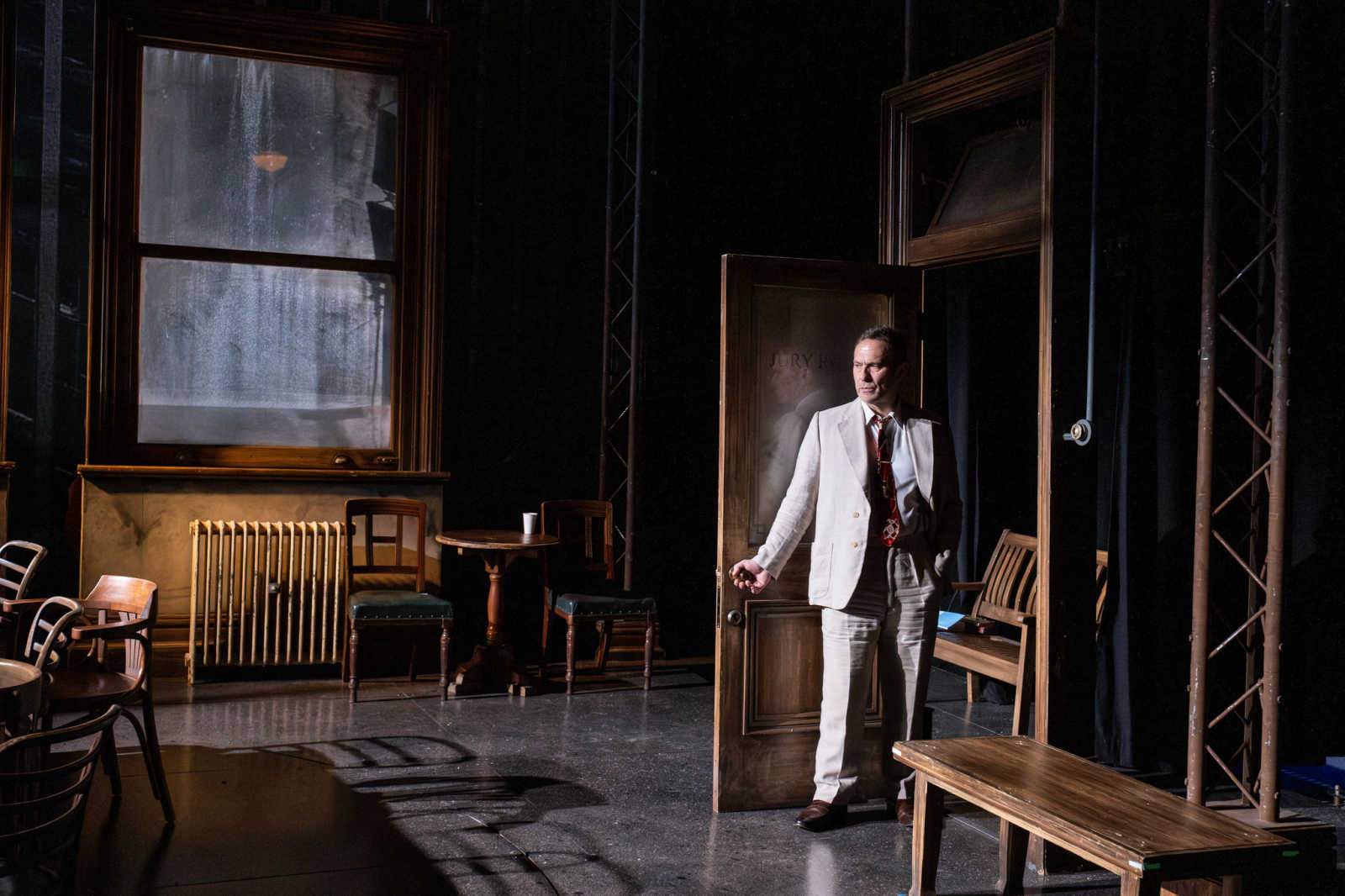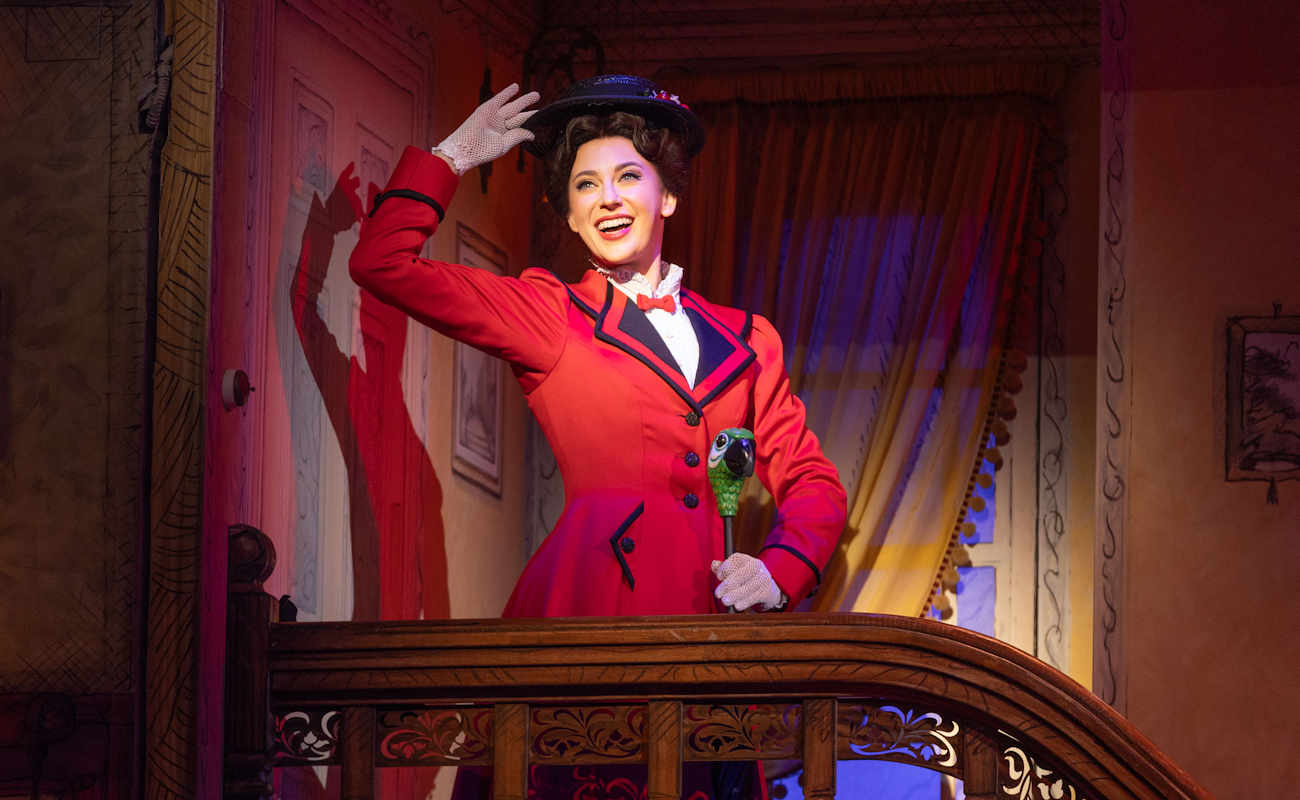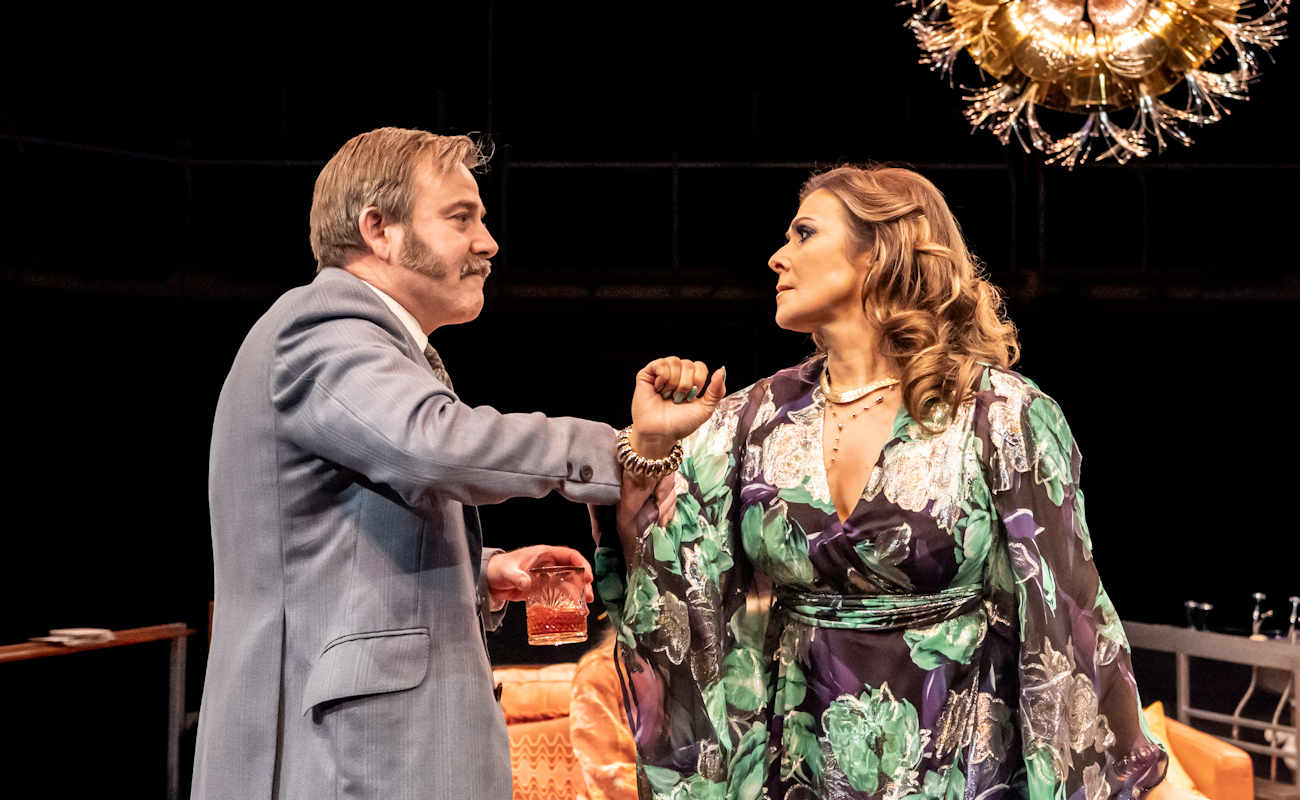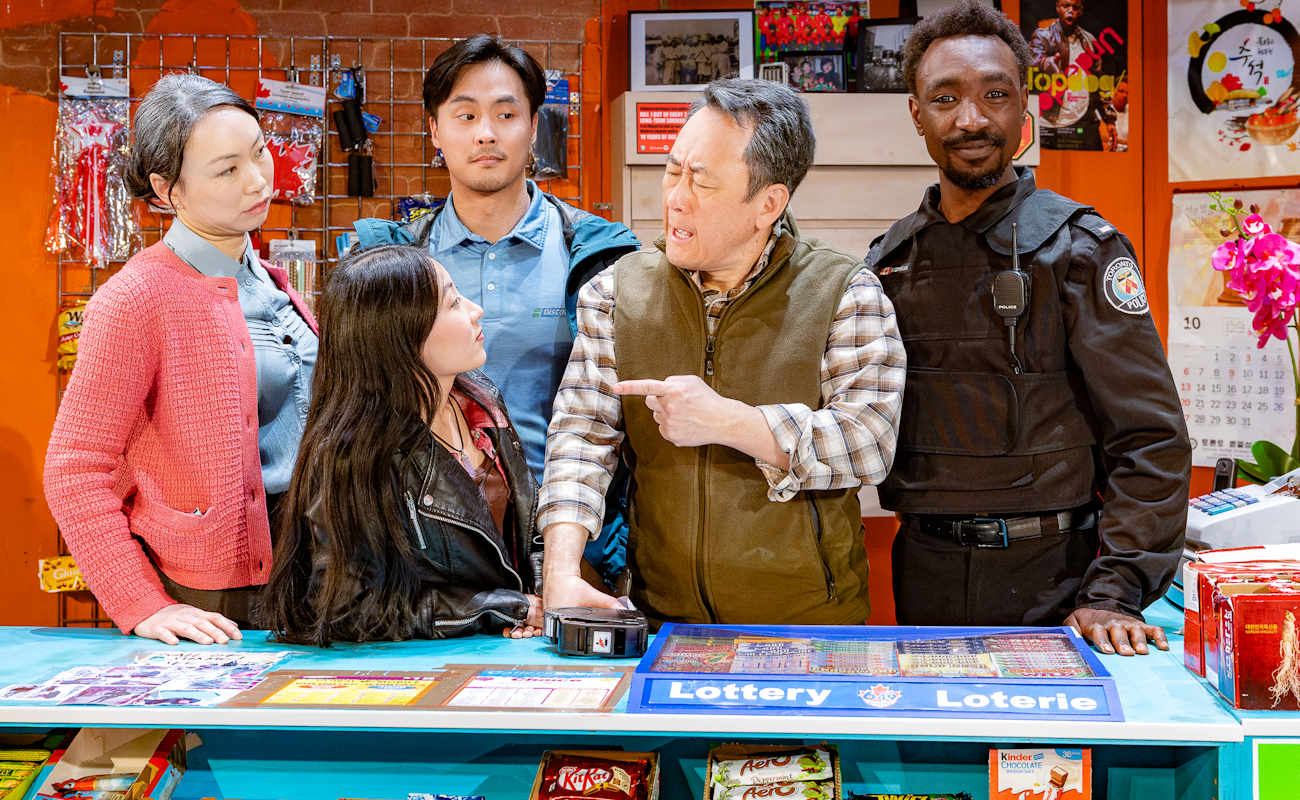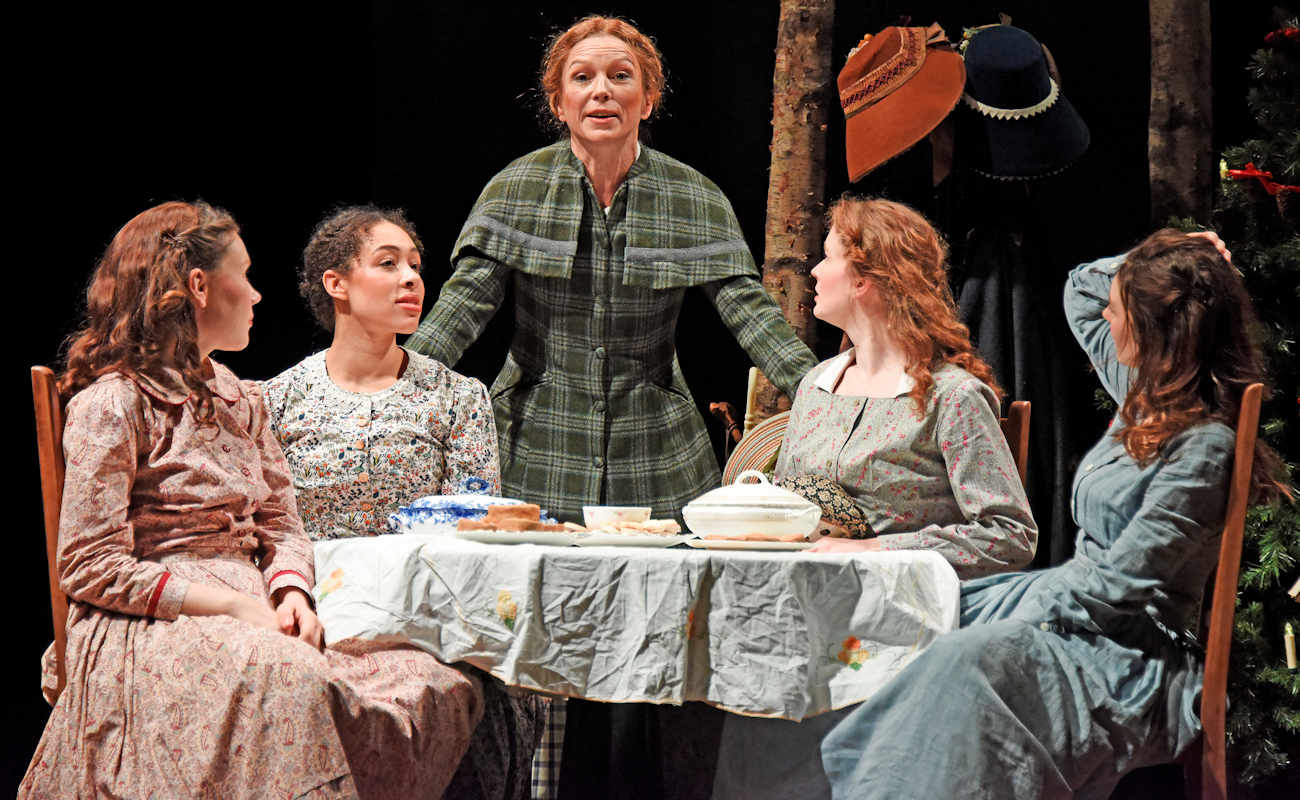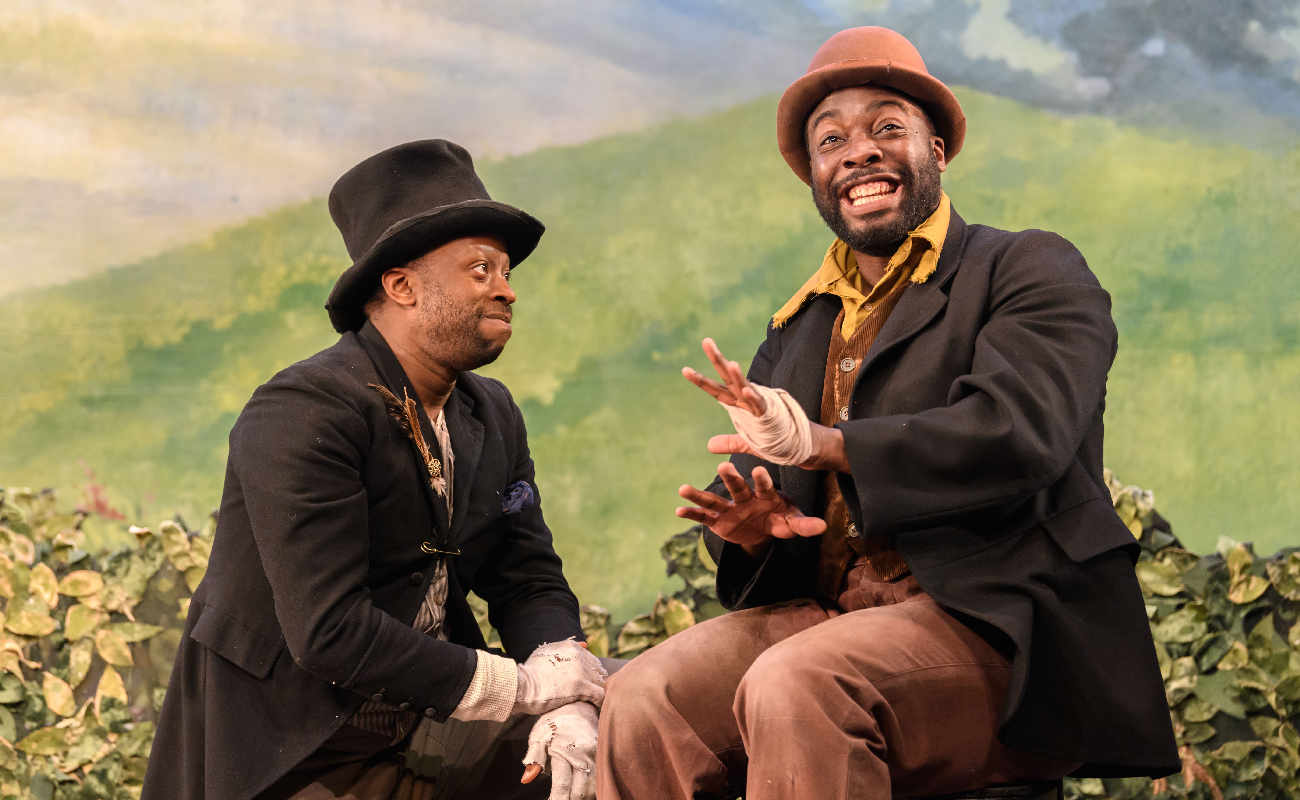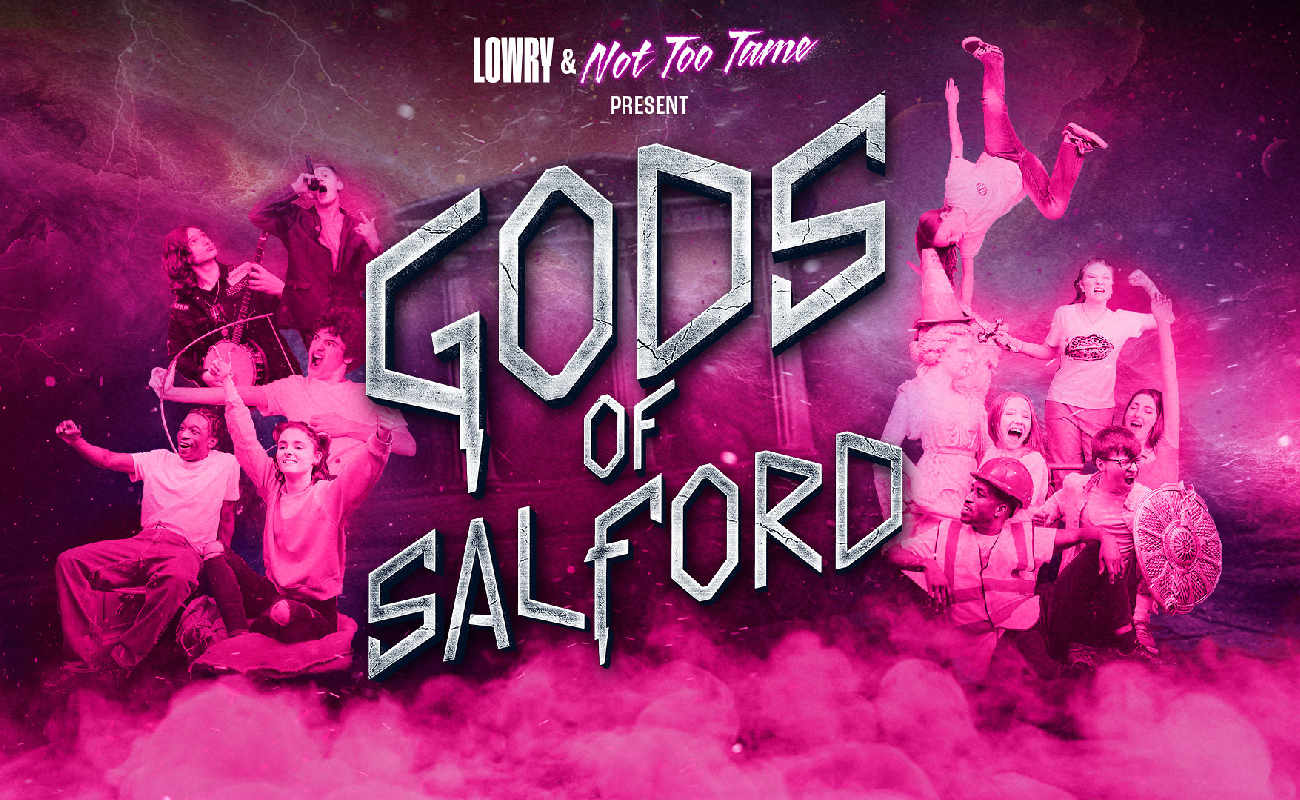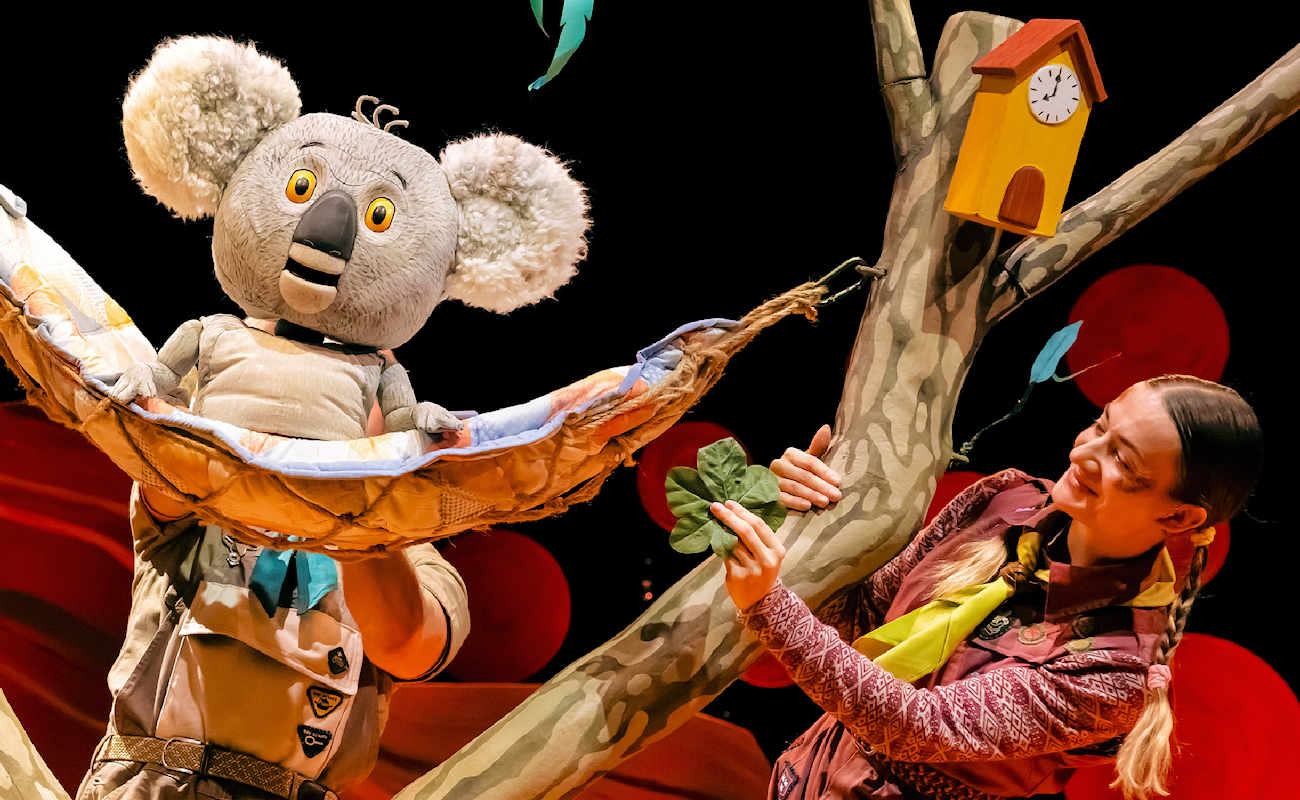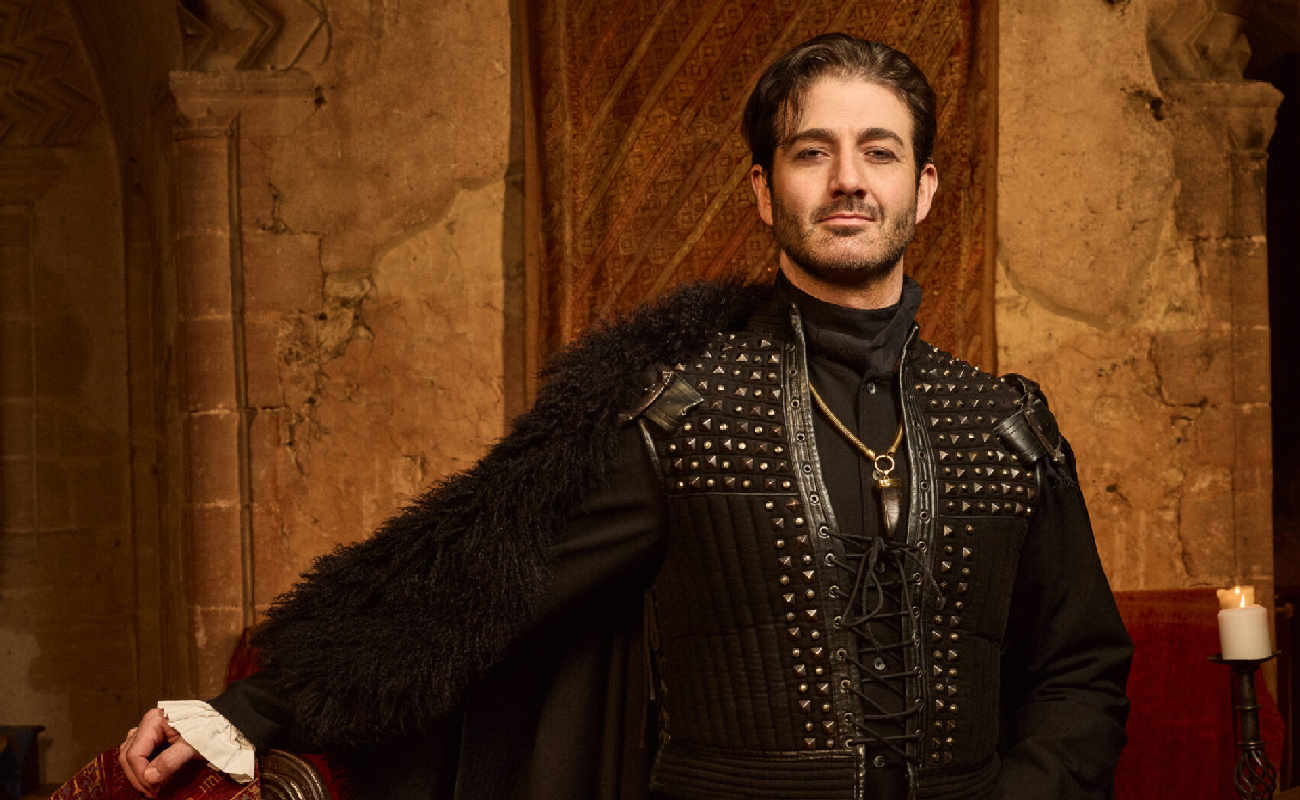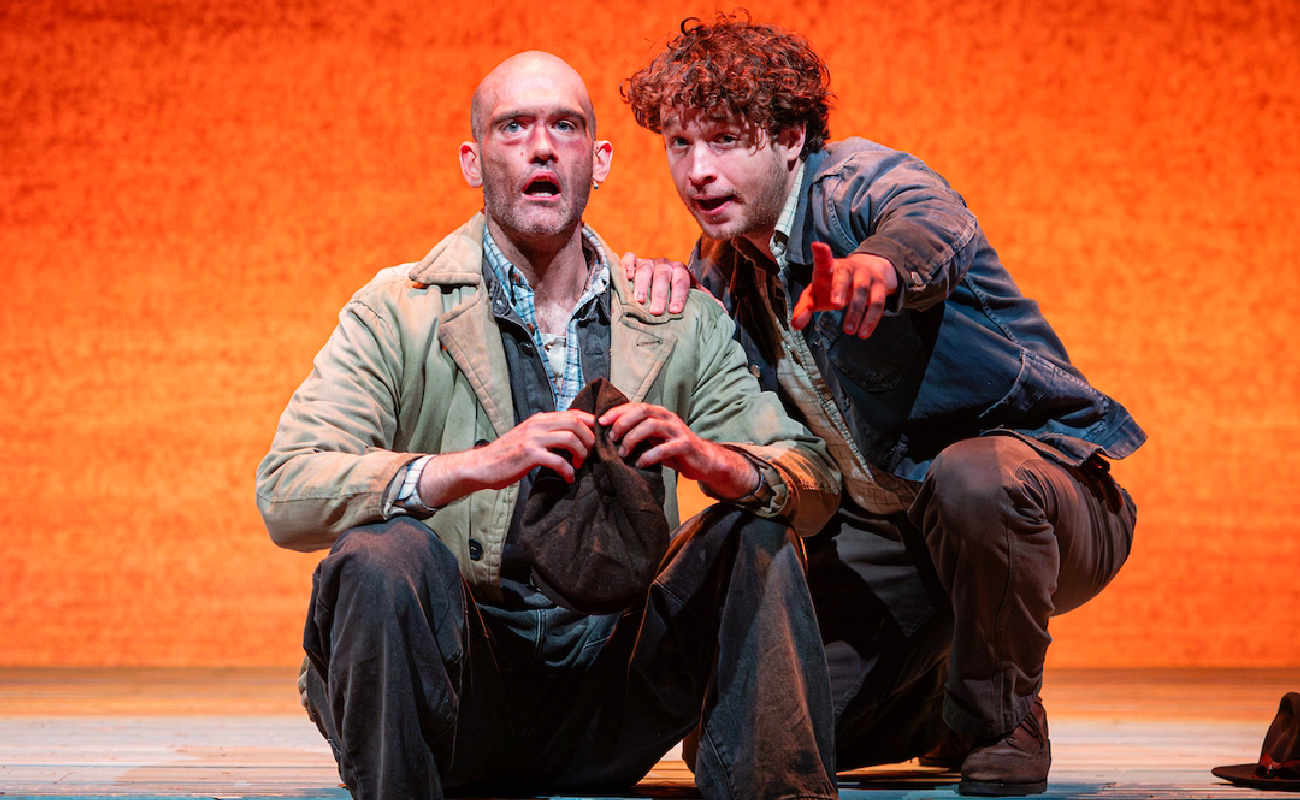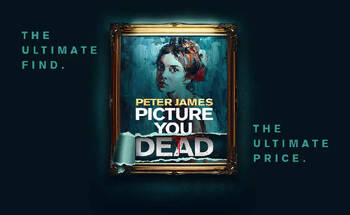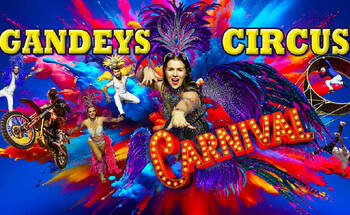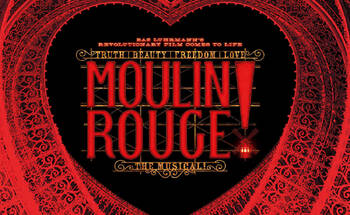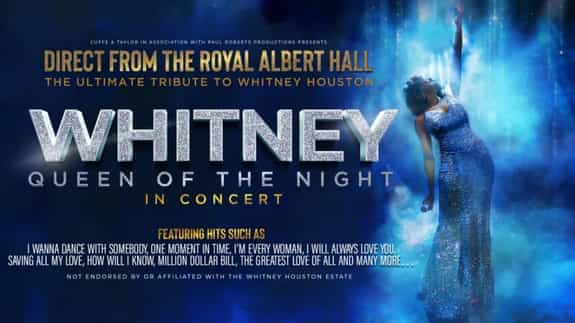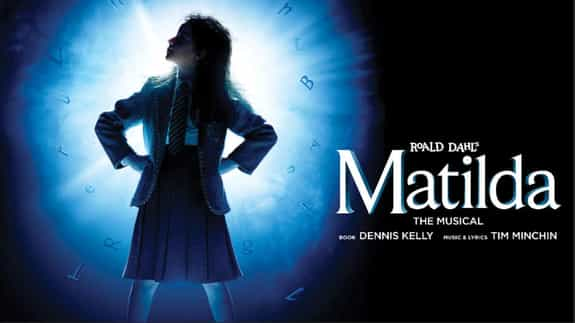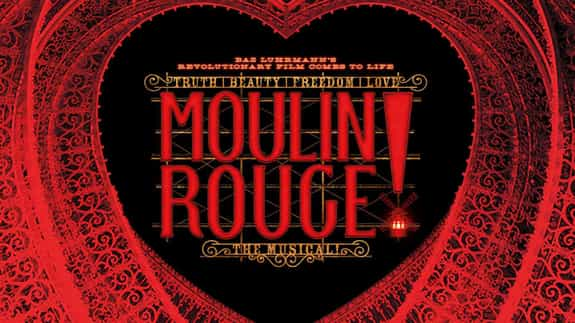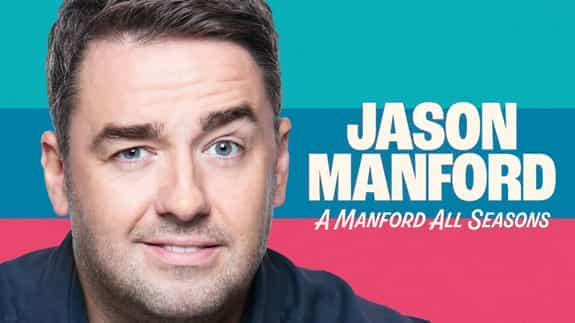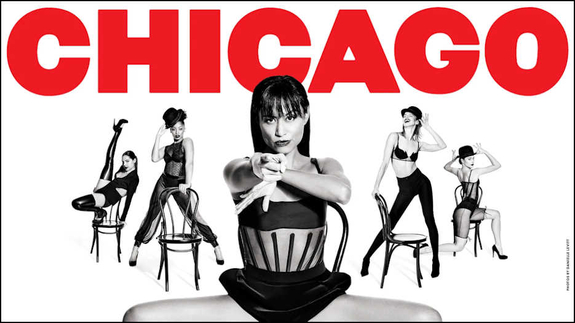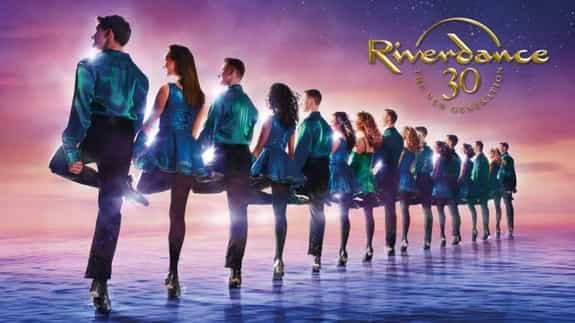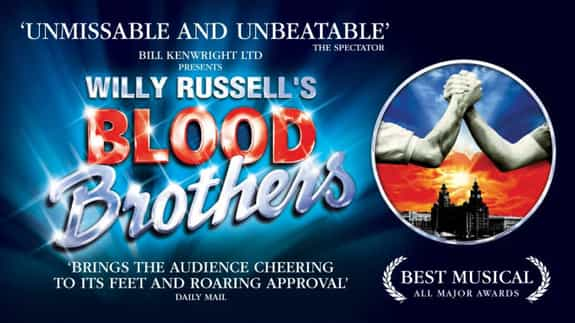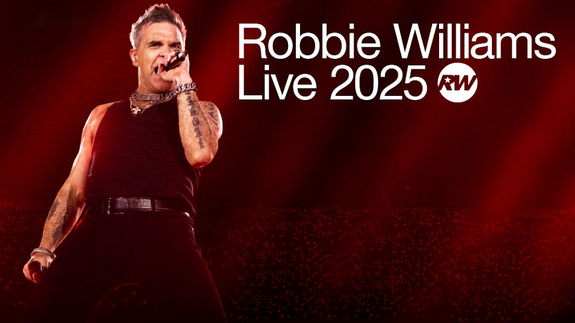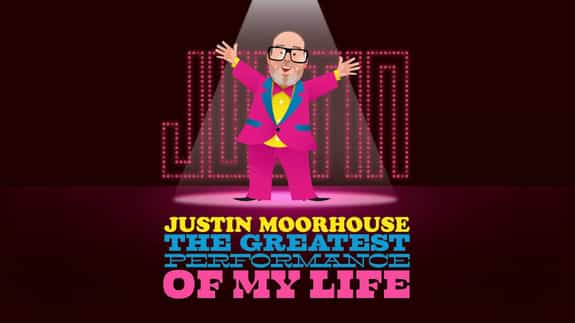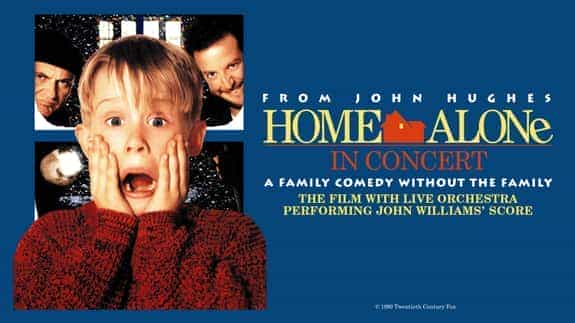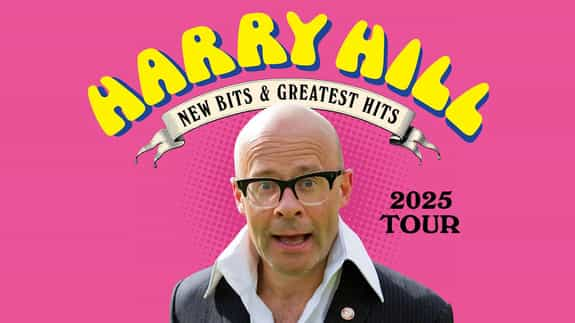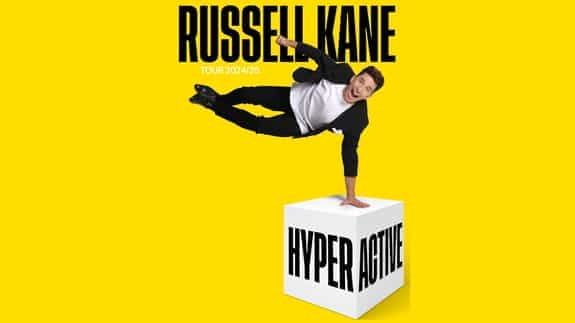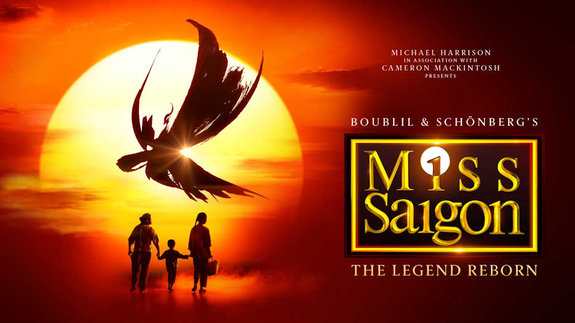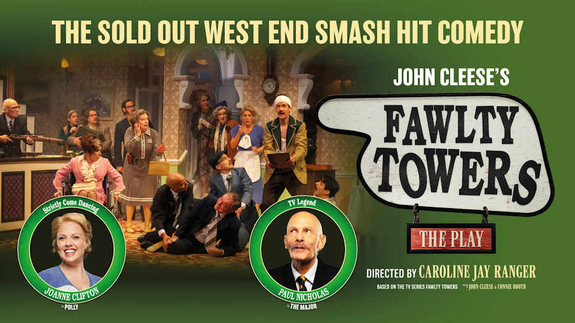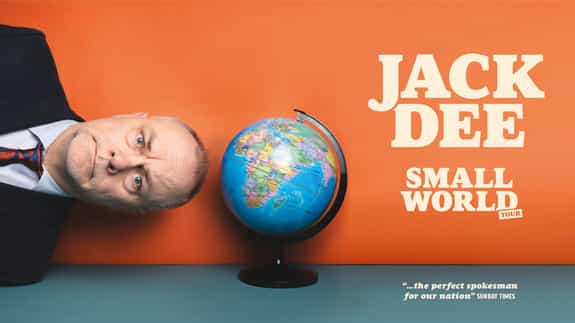Twelve Angry Men
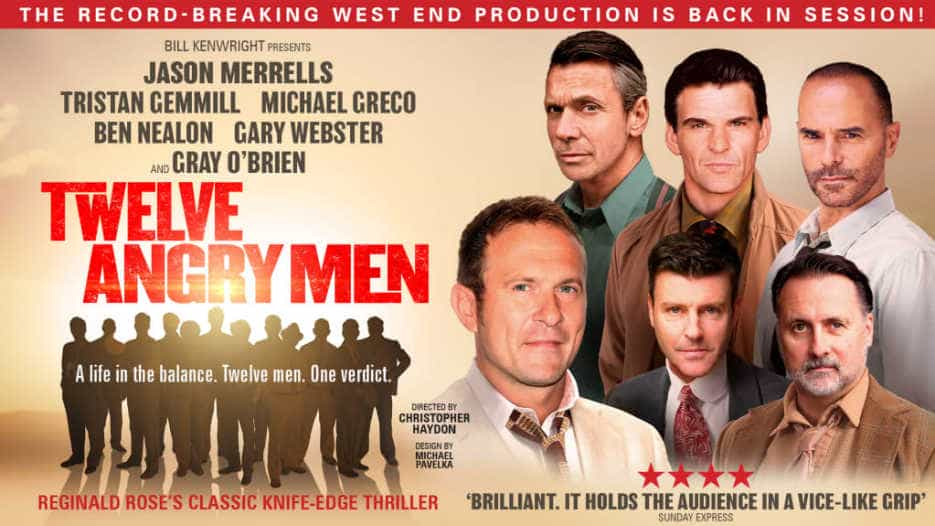
Following a record-breaking West End season, this powerful production of Twelve Angry Men is back in session!
Reginald Rose’s gripping courtroom thriller stars Jason Merrells (Casualty, Emmerdale), Gray O’Brien (Coronation Street, Peak Practice), Tristan Gemmill (Coronation Street, Casualty), Michael Greco (EastEnders), Ben Nealon (Soldier Soldier) and Gary Webster (Minder, Family Affairs), alongside an all-star ensemble.
Twelve Angry Men has been hailed ‘the classiest, most intelligent drama playing on the West End’. It brings the 1957 three-time Academy Award nominated film, considered one of the great ‘must-sees’ of all time, to the stage.
A jury has murder on their minds and a life in their hands as they decide the fate of a young delinquent accused of killing his father. But what appears to be an open and shut case soon becomes a huge dilemma, as prejudices and preconceived ideas about the accused, the trial, and each other turn the tables every which way, until the nail-biting climax…
Now it’s your turn to witness a ‘BRILLIANT’, ‘RIVETING’, ‘TRIUMPH’ of a show.
Twelve Angry Men Tickets

Sorry, there are no tickets for Twelve Angry Men in Salford available at the moment. This maybe due to one of the following reasons:
- - Twelve Angry Men in Salford tickets are currently not on sale.
- - The event has sold out.
- - Details have not yet been announced for Twelve Angry Men in Salford.
- - The event may have been cancelled.
- - The event has been and gone.
Join our free mailing list for
updates about this event

Twelve Angry Men ON TOUR
Our review on Twelve Angry Men
Twelve Angry Men - The Lowry, Salford - Tuesday 27th February 2024 by Karen Ryder
Our Rating
TWELVE ANGRY MEN IS GRIPPING, POWERFUL AND A BRILLIANT THOUGHT-PROVOKING DRAMA
Twelve Angry Men is no ordinary court room drama, the brilliance being that it shifts the focus from the court room into the jury deliberation room. This means that as well as us watching the jurors bring their own narratives, prejudices and experiences to the evidence and facts of the case, we as the audience are forced into a similar position because we are unable to make our own unbiased decisions on whether the boy on charge is guilty or not. We are unable to do this because we do not hear the evidence first hand, we hear it filtered down through the lens of these characters so it has already been infiltrated, misremembered and manipulated depending on their viewpoint. Add into that the fact that as human beings we are already doing exactly the same thing and forming personal opinions on the jurors. Do we like them? Do we trust them? Do find them calm or aggressive? Trustworthy or biased? All of these things will help us conclude whose ‘side’ we are on, and who we believe. As humans, it is hard not to fall prey to such instincts, but as jurors, these are exactly the things we must avoid at all costs. And so we too find ourselves at the heart of a court system that is full of complexities, one that is able to manipulate heightened stereotypes and make questionable evidence ring true, that is able to gloss over compelling details that contradict said evidence if the Lawyer for the defence is state appointed and resentful to his client, perhaps because of his own prejudices, perhaps because he isn’t making any money. So many things are able to influence our bias and manipulate our perceived free will along a path of breadcrumbs laid out for us, and lead us straight into the sweaty hands of a dominant Lawyer.
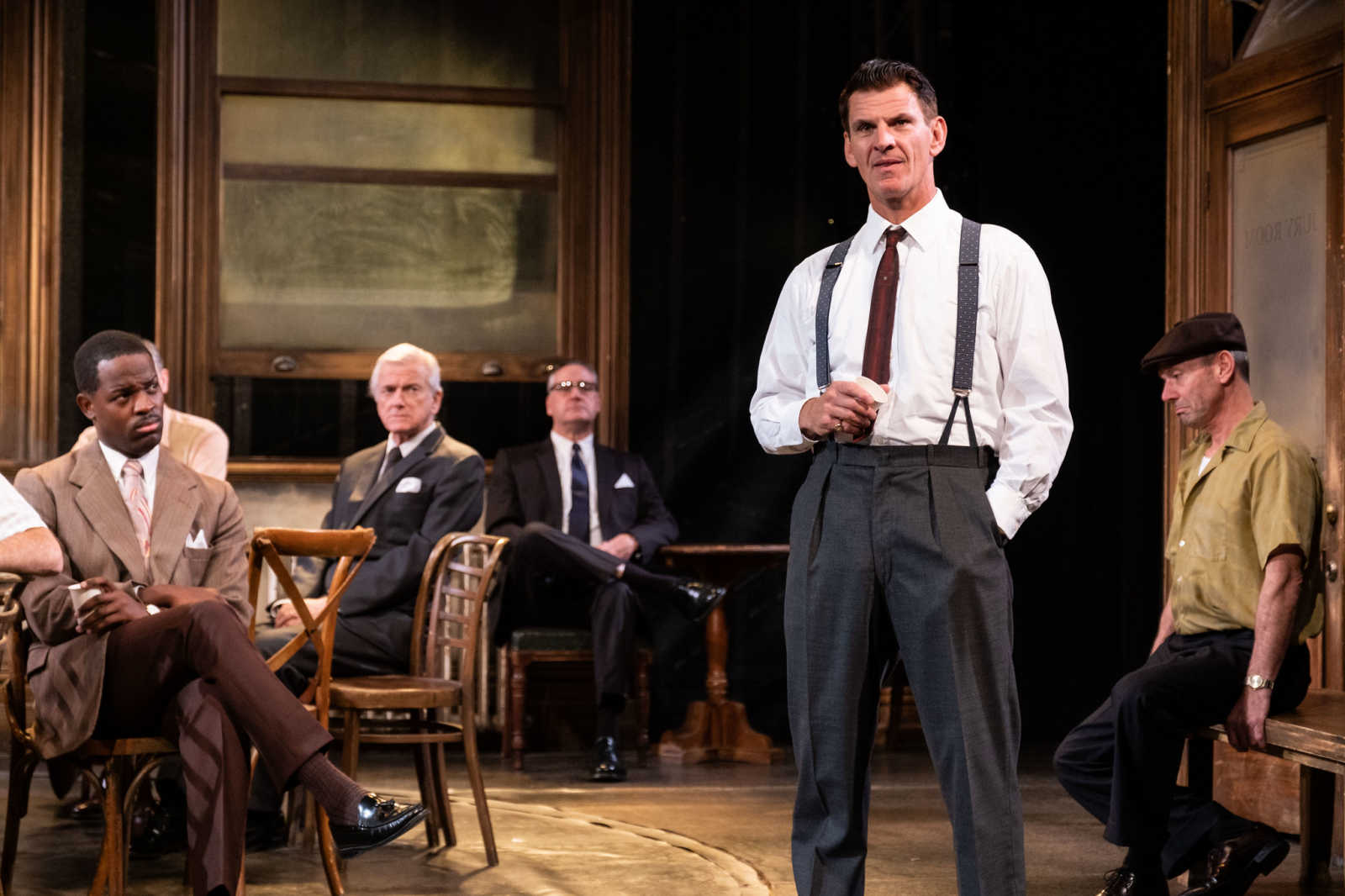
This is exactly what is at play in this jury room. Except for one juror. Juror 8. He is not so willing to blindly accept what is affectively being spelt out to him. He doesn’t necessarily have full conviction that the boy on trial is innocent, but he also remembers one vital fact. Beyond reasonable doubt. One of the highest standards of proof in criminal law, ensuring no one, including this boy on trial, can be convicted unless their guilt has been proven beyond any possible question. Juror 8 has questions. He is not willing to submit to herd mentality. He will not simply go with the majority for his own end, so he can get out the hot, suffocating jury room, or so he can get home to his sick child, or to make sure that heavens forbid – he doesn’t miss a ball game of his beloved team! He has integrity, his own mind, and empathy. So as juror 8 stands alone in voting ‘not guilty’ based upon his reasonable doubt, our story begins as bit by bit he questions the evidence given by the Lawyers, and he casts doubt upon the reliability of the witnesses. In short, he does the job the defence Lawyer should have done.
What follows is compelling. Juror 8 exposes the bias and prejudice of the other jurors and challenges their assumptions. He calmly goads the volatile juror 3 into attacking him, forcing him to shout out “I’m gonna kill you,” a statement also used as evidence, for the boy on trial was overheard shouting the same thing to his father who he is accused of murdering. Up until this point, juror 3 has declared this hard evidence to the boys guilt for “no one would say that unless they meant it.” His theory is proved wrong. Juror 8 is played by Jason Merrells (The Girl On The Train, Emmerdale, Finding Alice) and juror 3 by Tristan Gemmill (Coronation Street, Casualty, The Bodyguard) and the contrasting personalities of their characters makes for a thrilling performance. Between them they create plenty of intriguing clashes, both feeling their way through them in opposing manners, and just as we are starting to have little, if any patience for juror 8 and his belligerent, bullying ways, we are hit with our own judgements right at the end of the play, where we are given a heart wrenching insight and understanding as to why he is the way he is. This is finished off with the most simple and touching of gestures by juror 8, showing that empathy and understanding can always be on the table, despite our own slighted feelings. Only this way, can change ever stand a chance. Together, Merrells and Gemmill are captivating.
Gray O’ Brien (Educating Rita, The Loch, Coronation Street) is powerful as the racist juror 10. He drip feeds his poisonous prejudices throughout, and cannot understand why no one else sees what he sees. This culminates in a stand out monologue and a turning point in the whole show as his racist outburst, intended to convince others that he is right and so therefore the boy on trial must be guilty, in fact has the opposite effect, and makes the other jurors wake up to what has been at play here on a subconscious level in many of their own minds. As jurors 5 and 11 purposefully get up and walk out into the bathroom, slamming the door behind them, one by one, the other jurors remove themselves from 10’s stratosphere placing distance between them and turning their backs on him. Juror 10 is left alone and he realises he has just lost any credibility he may have had. As an audience member, you could hear a pin drop during this uncomfortable tirade of racist abuse and that is a good thing for we should feel uncomfortable. This script is written so intelligently, for the natural instinct would be for someone to argue back, for someone to point out how disgustingly wrong he is. Instead, he is left to keeping talking, digging a bigger and bigger grave for his own views, as the lack of response and support speaks volumes in the lingering silence. It is powerful.
The energetic jokester juror 10 is brilliantly performed by Michael Greco (Hatfields &McCoys, Eastenders, Chicago). He brings humour to this tense situation and loves his baseball team so much, he is willing to find the boy guilty for a quick result so they can be excused and he can make the game. His detail to character, whether it be chewing gum, messing with his hat, walking with the exact kind of confident jaunt you would expect, this is the type of character we all know or have met and Greco brings him truly alive. He is able to provide quick one liners and provide comedic moments in such a natural and realistic manner that he equally never threatens the drama involved or belittles the overall theme. Ben Nealon (Witness For The Prosecution, Dial M For Murder, Soldier Soldier) also gives the audience those moments that allow us to relax and breath from the undeniable tension as Juror 12, for he cannot keep up with the overwhelming arguments for both cases of guilty and not guilty, and so keeps changing his mind. He is the perfect representation of someone who feels the pressure of stronger personalities and so relents more easily than others. However, through the depths of Nealon’s performance, we can also see how this does not sit well with him, and the uncomfortable inner turmoil he is grappling with shines through.
Gary Webster (Minder, Family Affairs, Macbeth) as juror 6 takes some convincing to switch to a not guilty vote, as he blindly stands by his gut feelings. He gives us another angle to consider as he focuses on the motive for murder rather than the evidence, but this is also the downfall to his beliefs in a brilliantly dramatic and mesmerising moment. As we see him quick to defend juror 9, played by the wonderful Paul Beech (King Lear, The Rivals, David Copperfield), we see chinks of compassion and a protective kindness. Webster plays these contrasting elements of his character with such believability that we don’t initially see what is right under our noses – we are not simple creatures who are all good or all bad and so to make quick and rash summations will not provide us with accuracy. Paul Beech’s calm and gentle nature may be dismissed in a room of larger personalities and hot heads to begin with, but his fairness, and empathy are a leading light in being able to put ourselves in the shoes of those involved in the case. He understands the potential motives of one of the witnesses for embellishing his testament when it is proved to be impossible. He doesn’t project anger and mistrust, instead, he offers explanation using his own experiences and feelings as a reason to defend the boy rather than convict him as most others are quick to do. Beech brings a serene wisdom to the proceedings.
Samarge Hamilton (The Shawshank Redemption, Abandon, Holby) and Kenneth Jay (A Midsummer Night’s Dream, Cat On A Hot Tin Roof, The Shawshank Redemption) are jurors 5 and 11 respectively. They are treated with hostility by some of the others from the off because of race and ethnicity. Both reflect this struggle and injustice with a graceful demeanour, Hamilton through his contained and controlled feelings speaking to us through expressive yet subtle body language and facial expressions, and Jay through the charismatic and charming delivery of powerful responses, particularly to the racist juror 10 when he asks, “What are you so goddam polite about?” He beautifully responds with such powerful simplicity, “For the same reason you’re not. It’s the way I was brought up.” The delicate aura of both these characters are pitched perfectly to give a profound grace to the marginalised, whilst the prejudice lose power with their volume and brash approach. Mark Heenehan (The Shawshank Redemption, Evita, Patient Zero) is the privileged juror 4 who has a genuine belief that he is from a better class than the defendant and that class automatically equates to honesty and decency. He has a powerful presence throughout and his measured and composed approach to the entire room holds up against any evidence to suggest he may be wrong. He has an aura about him that is hard to define but gives him an authority that many turn to and look up to. He does not raise his voice, he does not need to because his presence is such that you will pay attention to him just because he is there. It is an almost hypnotic performance and brilliantly executed.
Paul Lavers (The Sound Of Music, Catch Me If You Can, Doctor Who) and Owen Oldroyd (The Shawshank Redemption, Blithe Spirit, The Scarifyers) play juror 2 and juror 1 – the foreman. Both portray a brilliant performance of frustrated restraint as they are talked over, dismissed, belittled, and on the receiving end of aggression. They still make their characters shine in a play full of large personalities and fantastically highlight how acting, as in life, is just as much about what you don’t say than what you do. Completing the cast onstage tonight was Jeffrey Harmer (An Inspector Calls, Shadowlands, Diana: Her True Story) as the guard, who despite having little involvement with the jurors, is still onstage throughout and not once breaks character. It is rare I talk through every single cast member in a production, but Twelve Angry Men has to be an exception as it is an ensemble piece in its truest form. No single performance could achieve its potential without the brilliance detailed by every single cast member. Therefore, I cannot in all fairness talk about some and not others.
This cast do not leave the stage. They have to give a true performance and be tuned into their characters reactions and responses. They have to portray the human nature of their minds wandering to irrelevant places, and then find a way back into the present. They have to know what their character is thinking and feeling at every given moment, and it shows. It shows on each and every one of them and it creates an effortless flow. It is so believable, so realistic that you are swept away and the time flies by. You are so enraptured by the performances that you can be forgiven for not noticing certain effects, such as the slowly rotating table, until of course, like me, you suddenly realise it has changed positions and wonder how and when it happened. The only thing that some audience members struggled with was hearing the quieter characters when they spoke. There of course had to be a contrast in dynamics and making you strain to listen does have a certain effect of really drawing the audience in and making us focus on your every word, but I do wonder if we sometimes struggled in the stalls, how would those in the seats higher up and further away manage?
Directed by Christopher Haydon, Twelve Angry Men has not lost anything in its transfer from the epic film many know and love, to this production. In fact, it has gained momentum, because we are not guided by camera angles as to who we should be watching or focusing on, we are free for our eyes to continually roam across all of the characters. Therefore, the direction had to be engaging and thorough throughout, which it truly was. The creative team of Michael Pavelka (set and costume), Chris Davey (lighting) and Andy Graham (sound) does an outstanding job of capturing the suffocation of the temperature, the storm (with water that splashes down across the windows), the stifling irritation of the outside noise, the fan, and the claustrophobia of the room they are all locked in.
This production of Twelve Angry Men honours the late, great Bill Kenwright with its dedication to outstanding theatre and its ability to make an entire audience sit on the edge of their seats, question themselves, and leave wondering what on earth they would do given the same circumstances. There is no easy answer as you can’t help but face the fact that juror 8 not only made all his fellow jurors question their reasoning, but undeniably, made the entire audience do so too. And it showed that anger and hate does not have to win. Compassion, empathy, control, understanding, and listening are far more powerful resources to possess, and when held with nerve, pride and unbiased conviction, have the ability to change even the most hardened of minds.
WE SCORE TWELVE ANGRY MEN...
Watch our "In Conversation with Tristan Gemmill" video discussing the show
